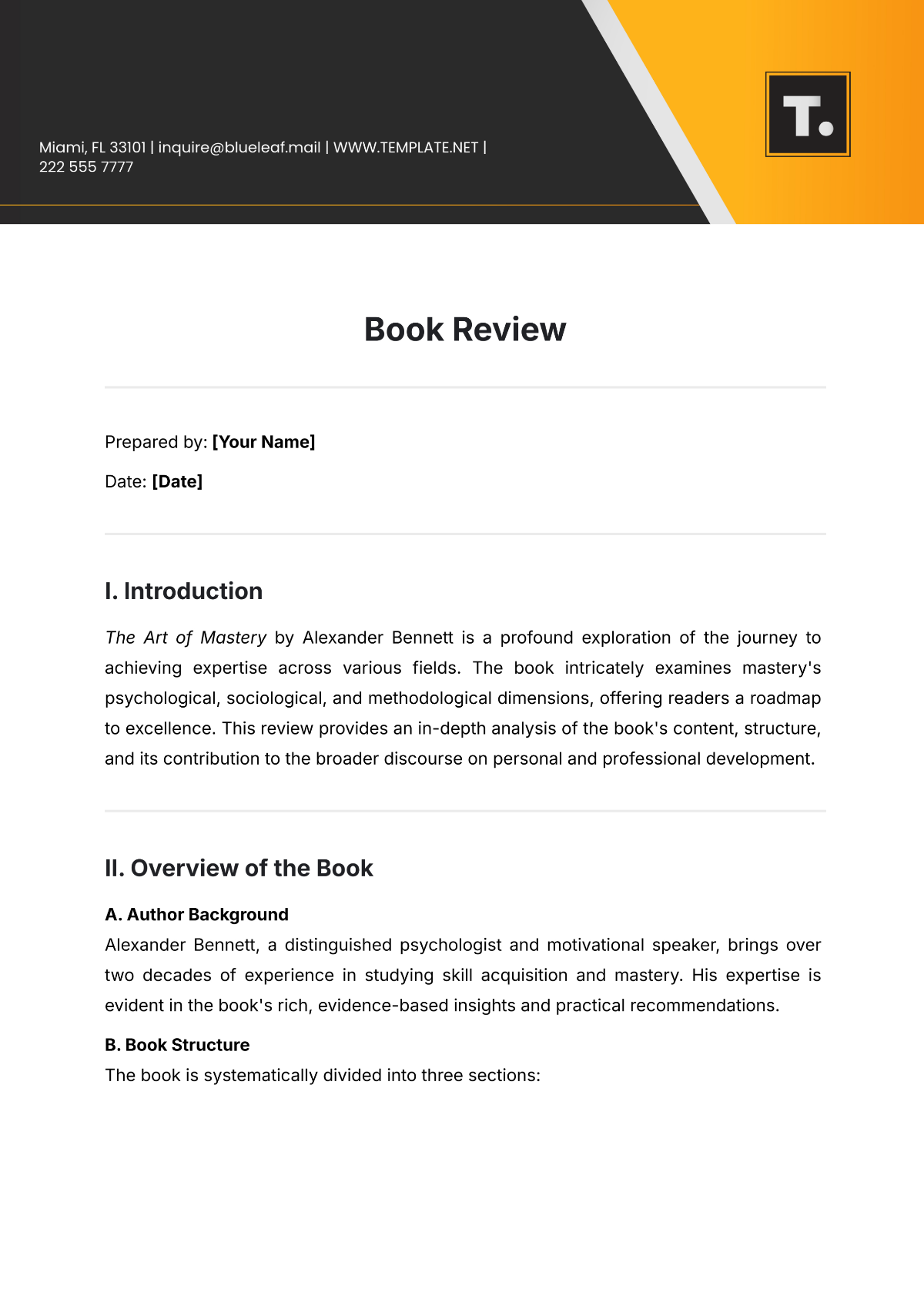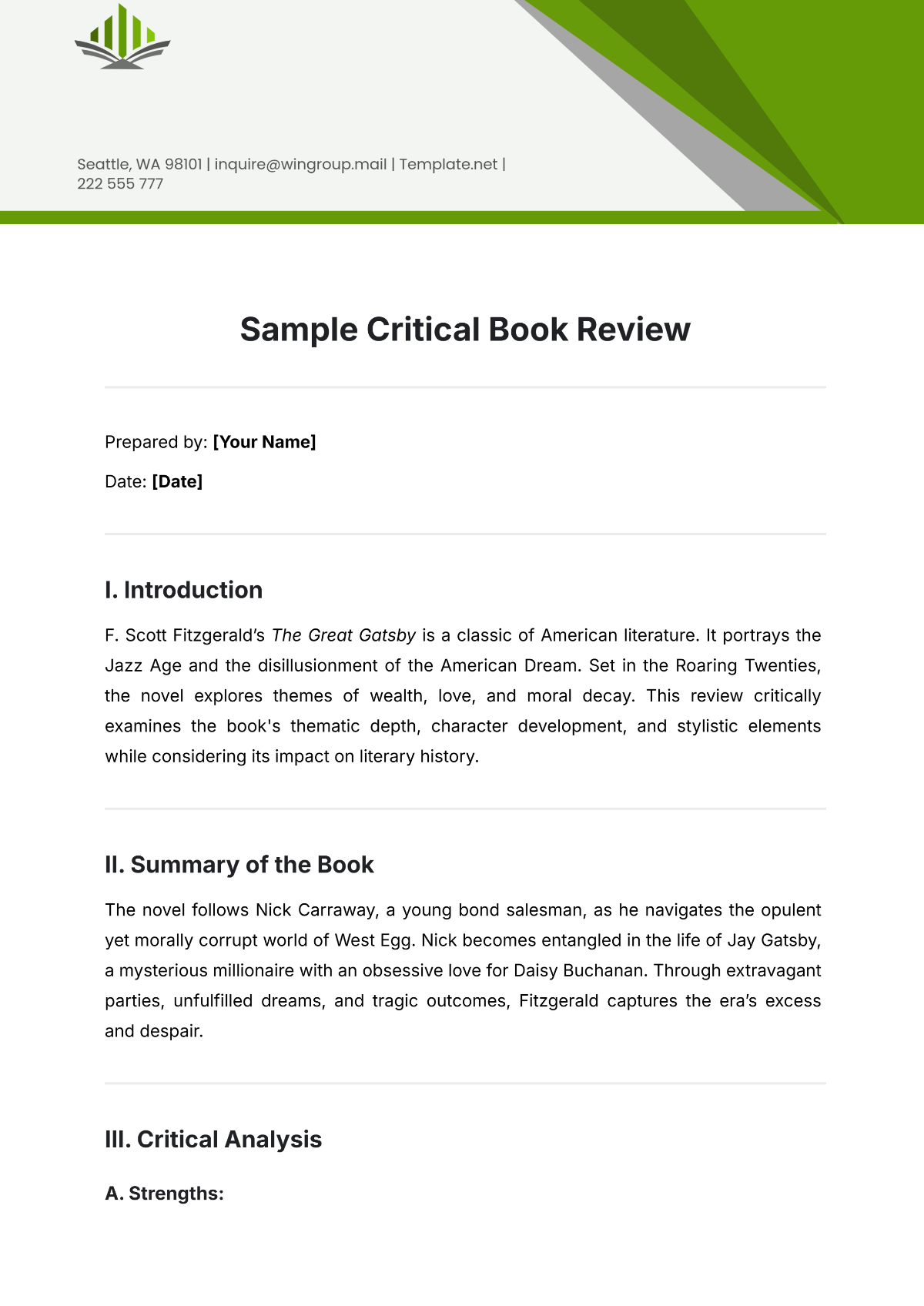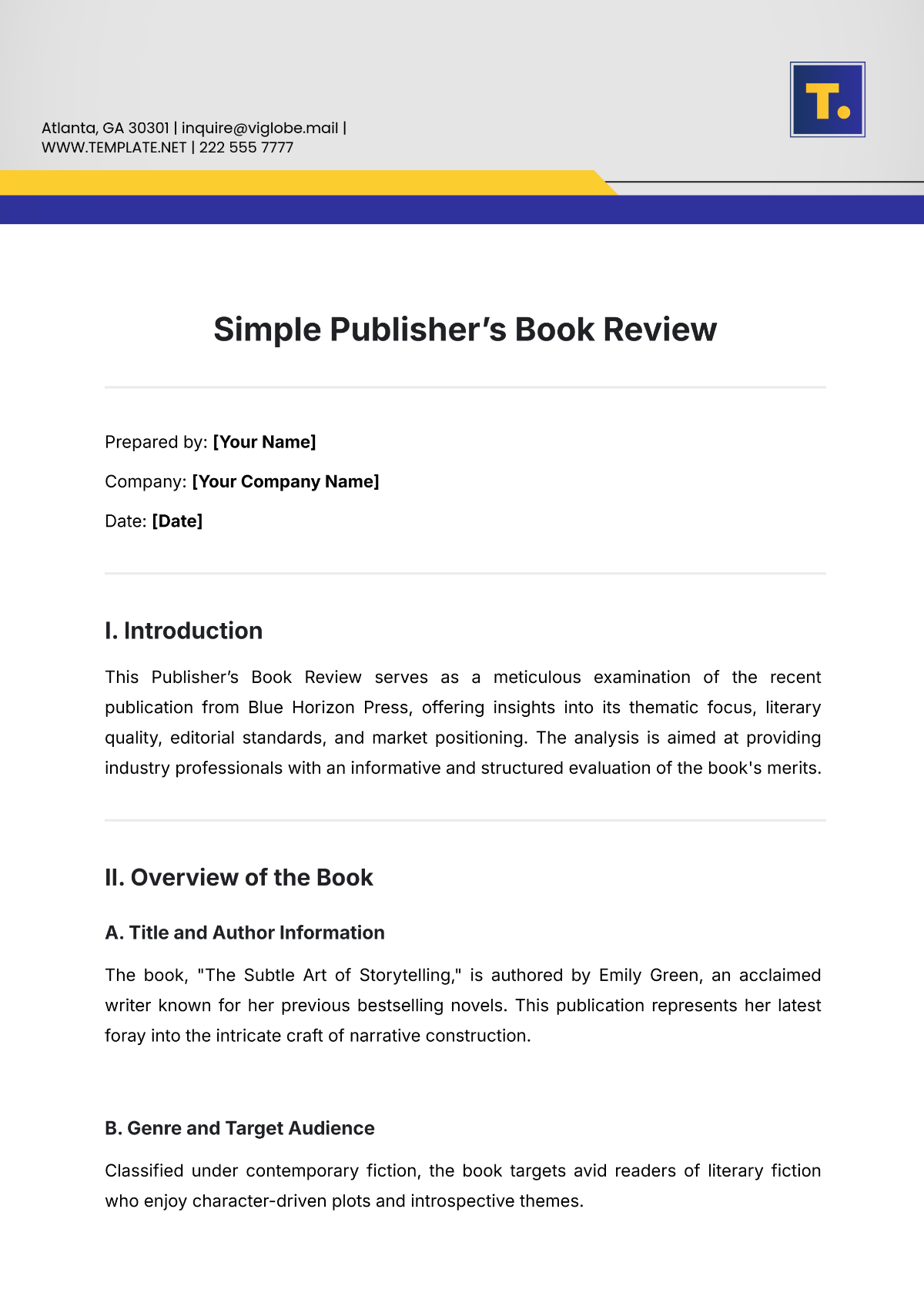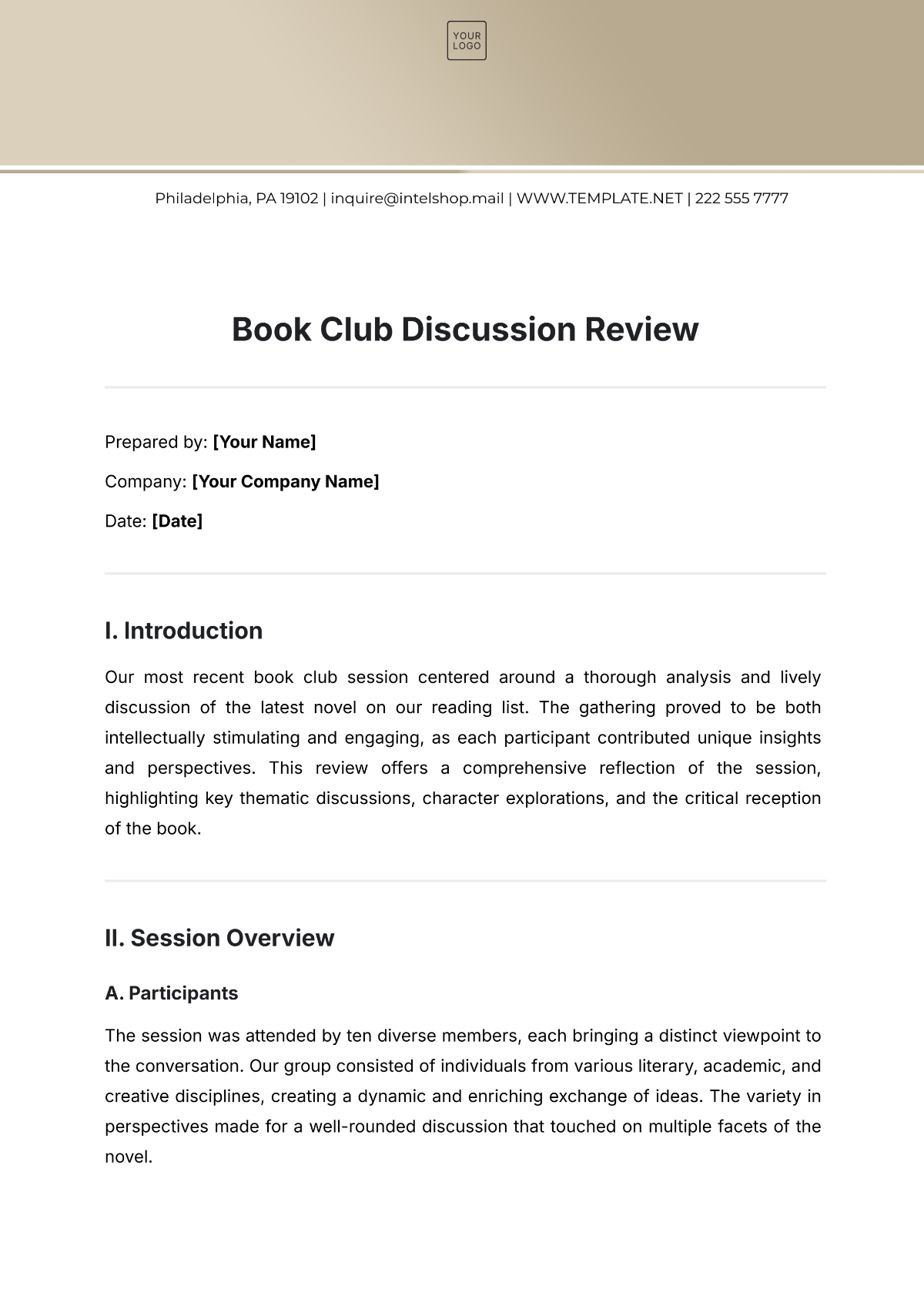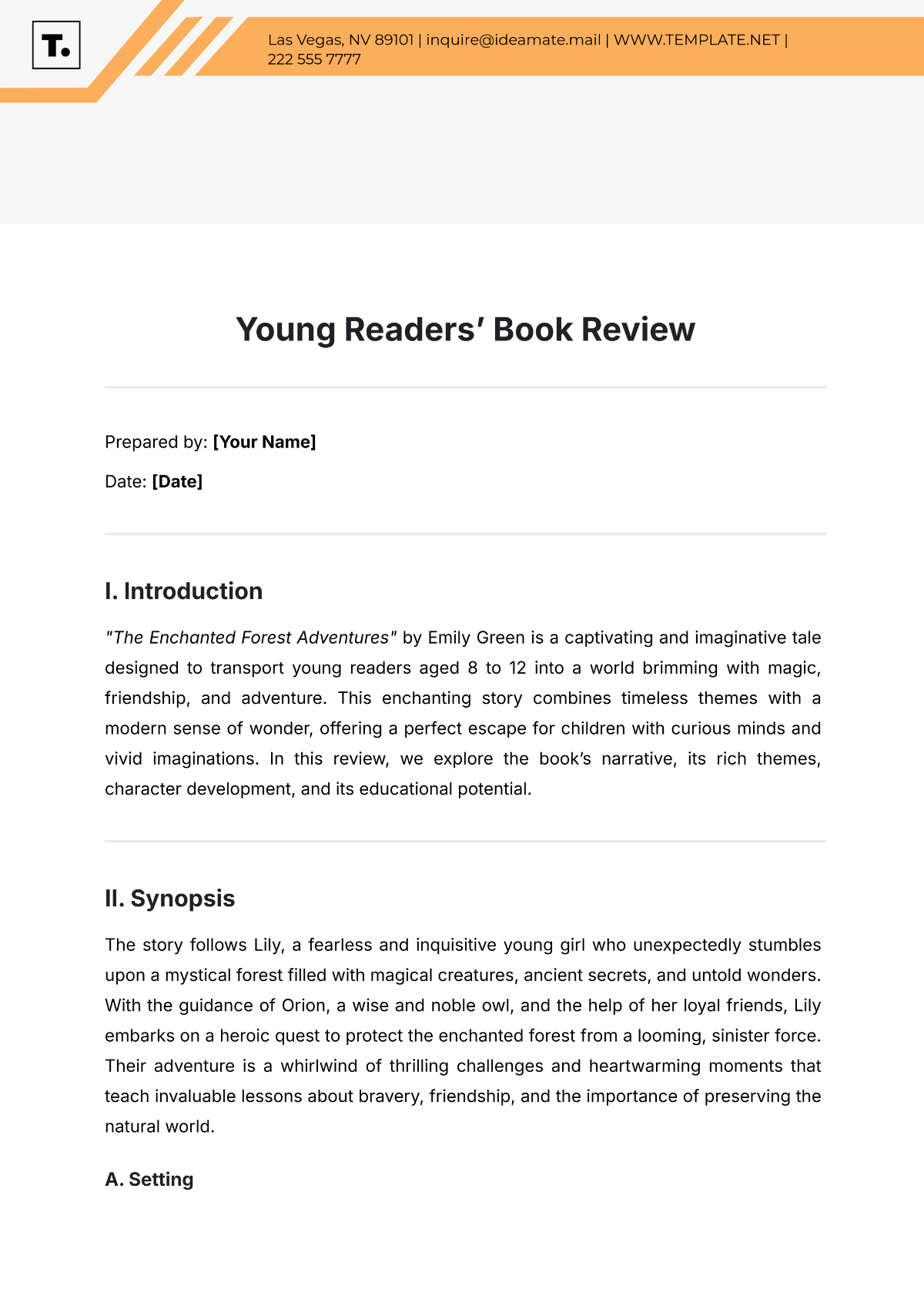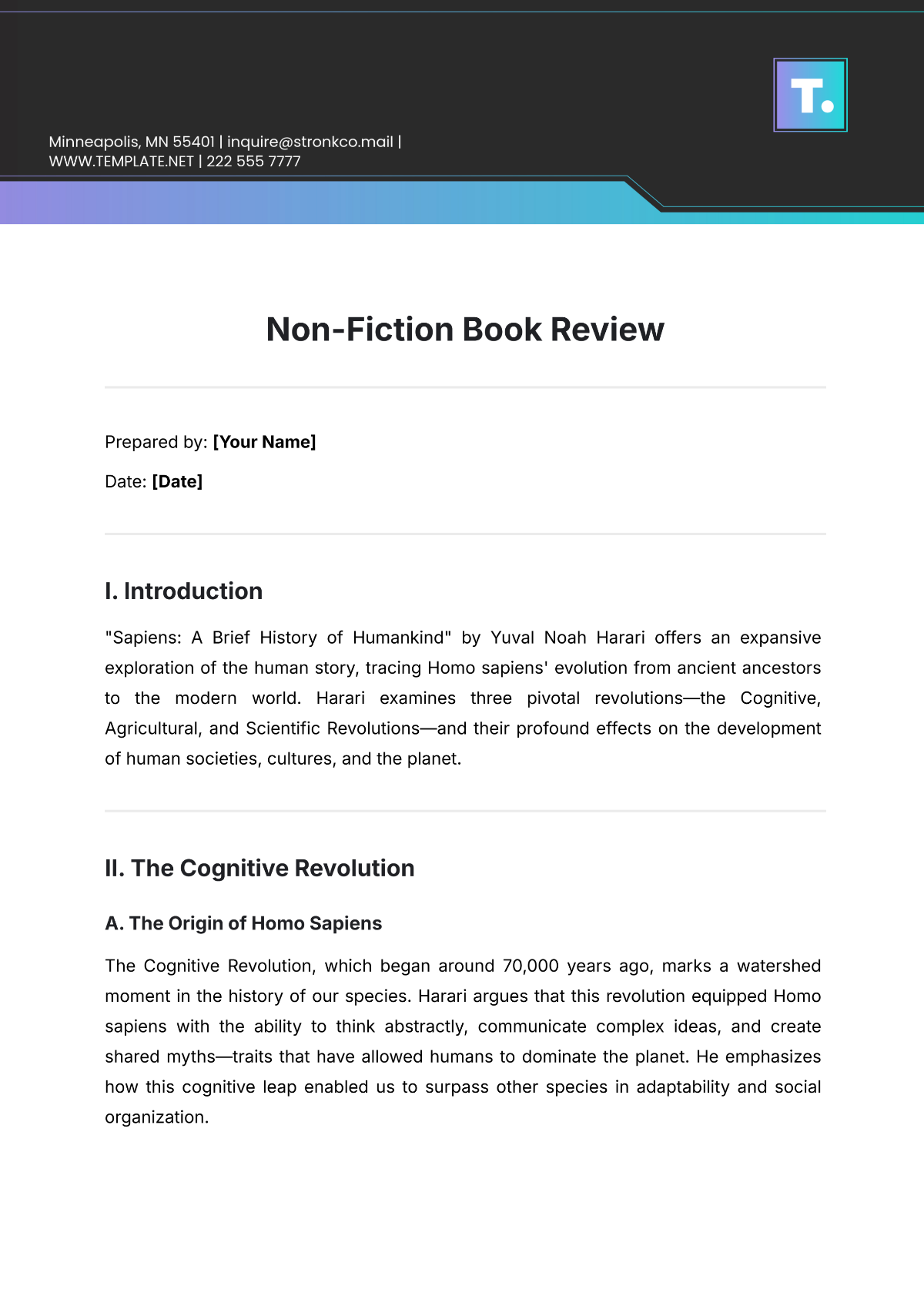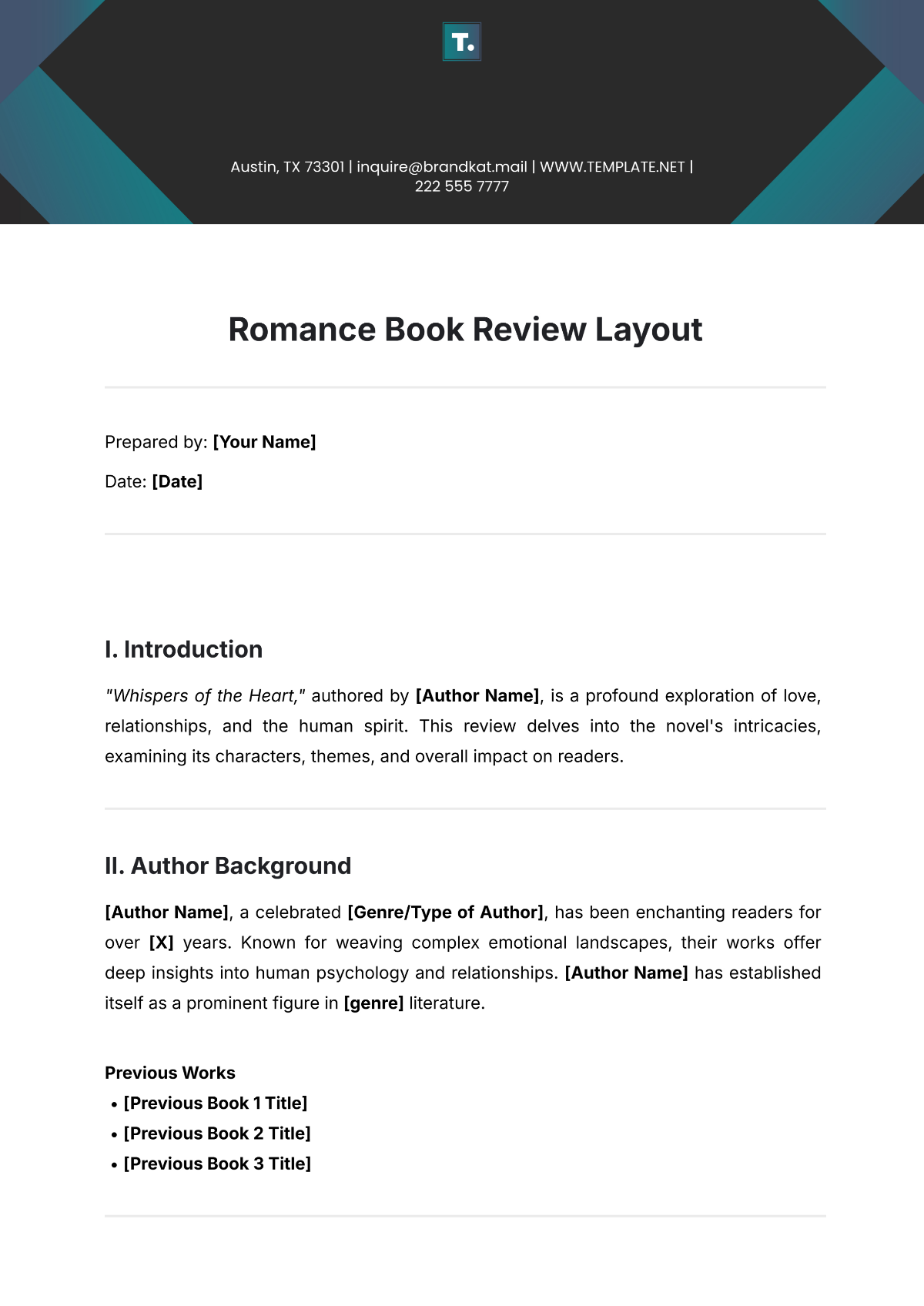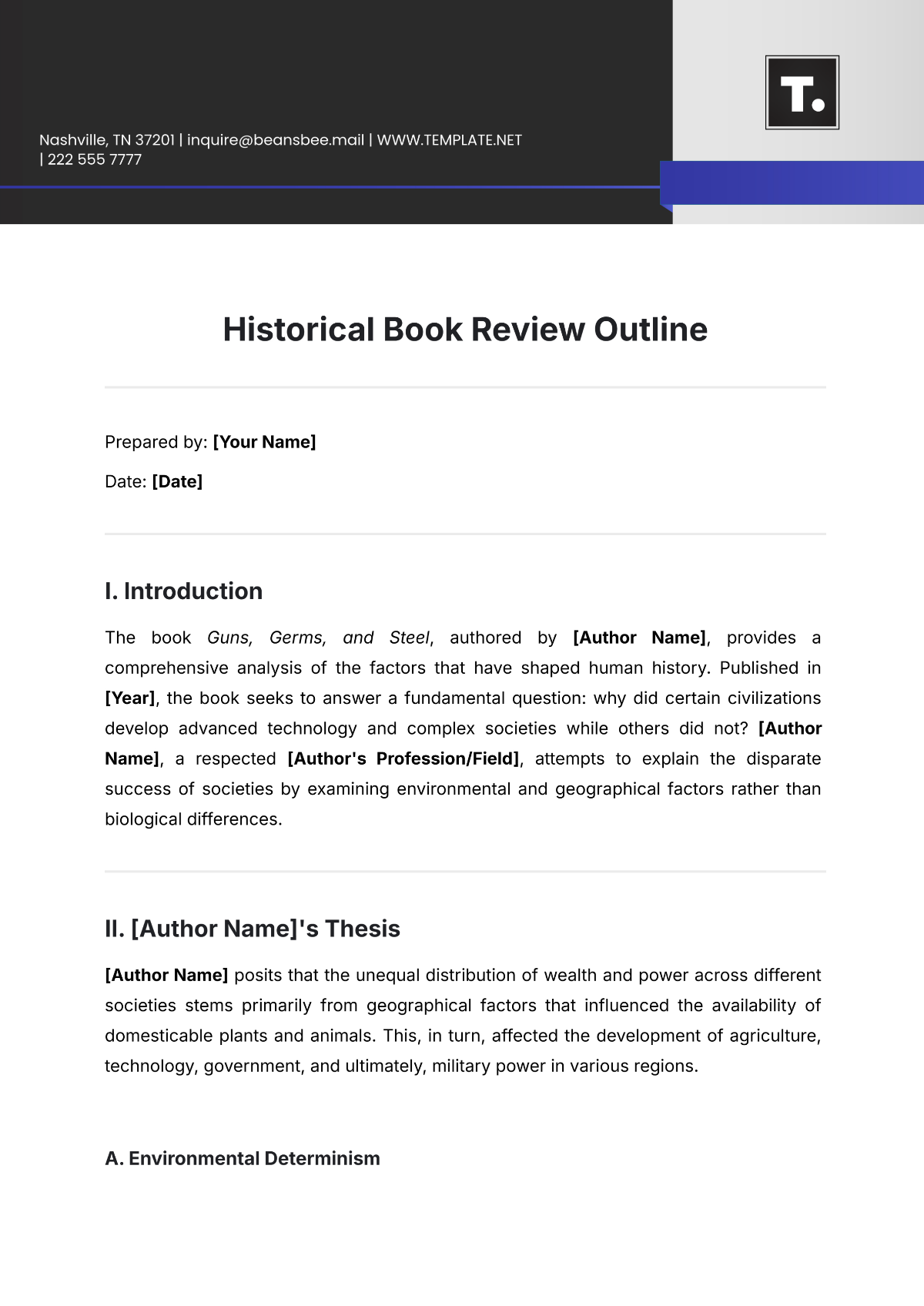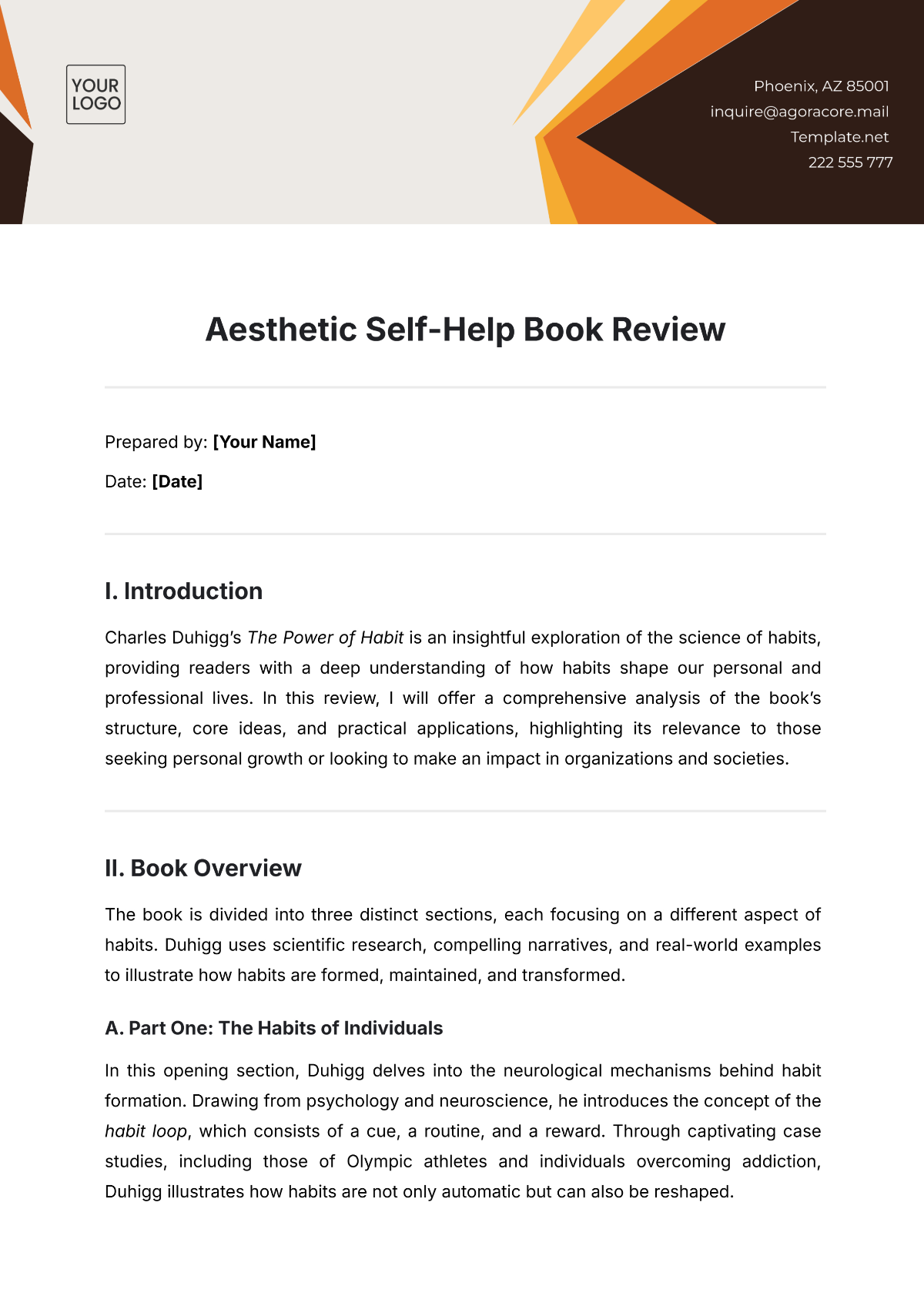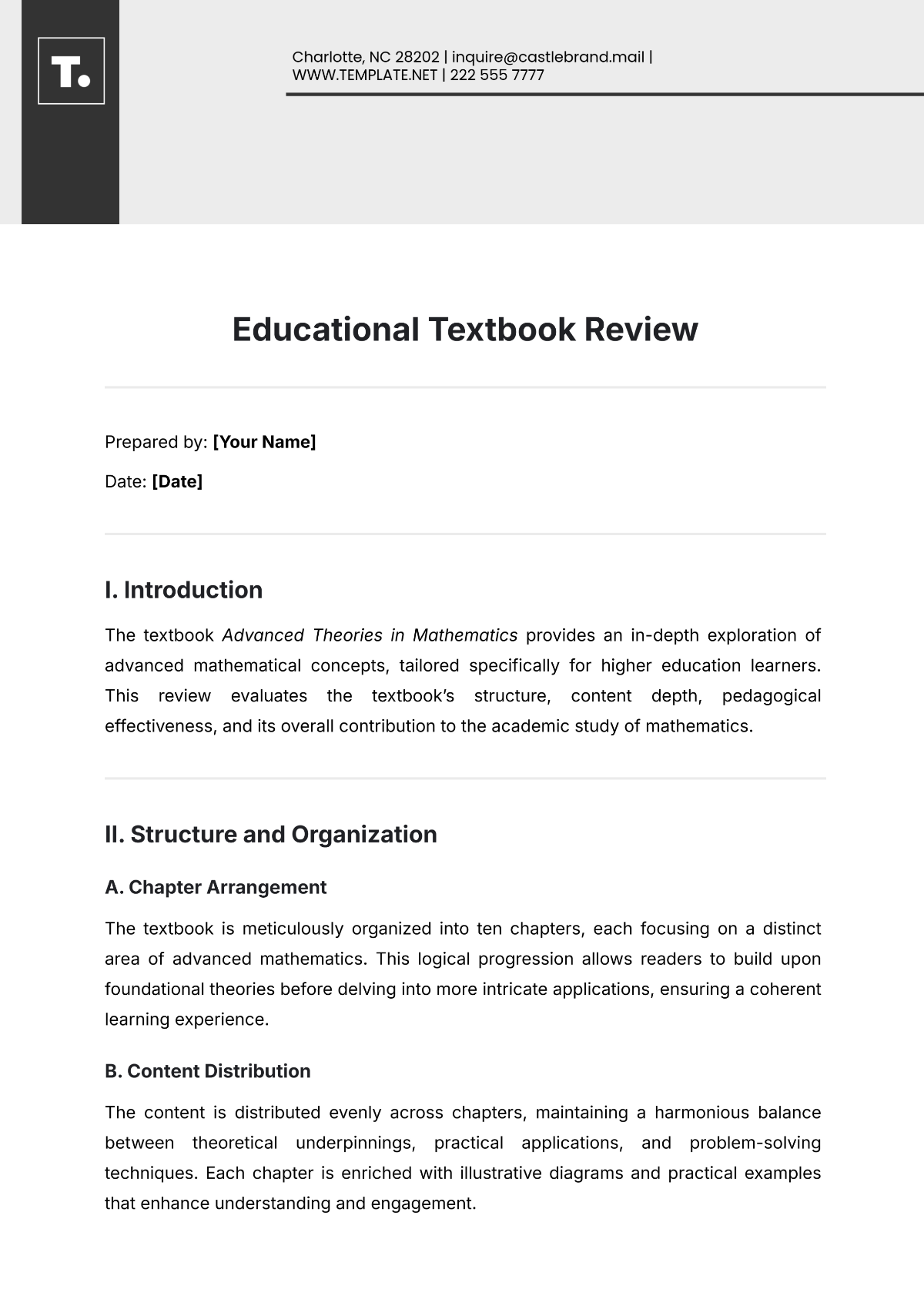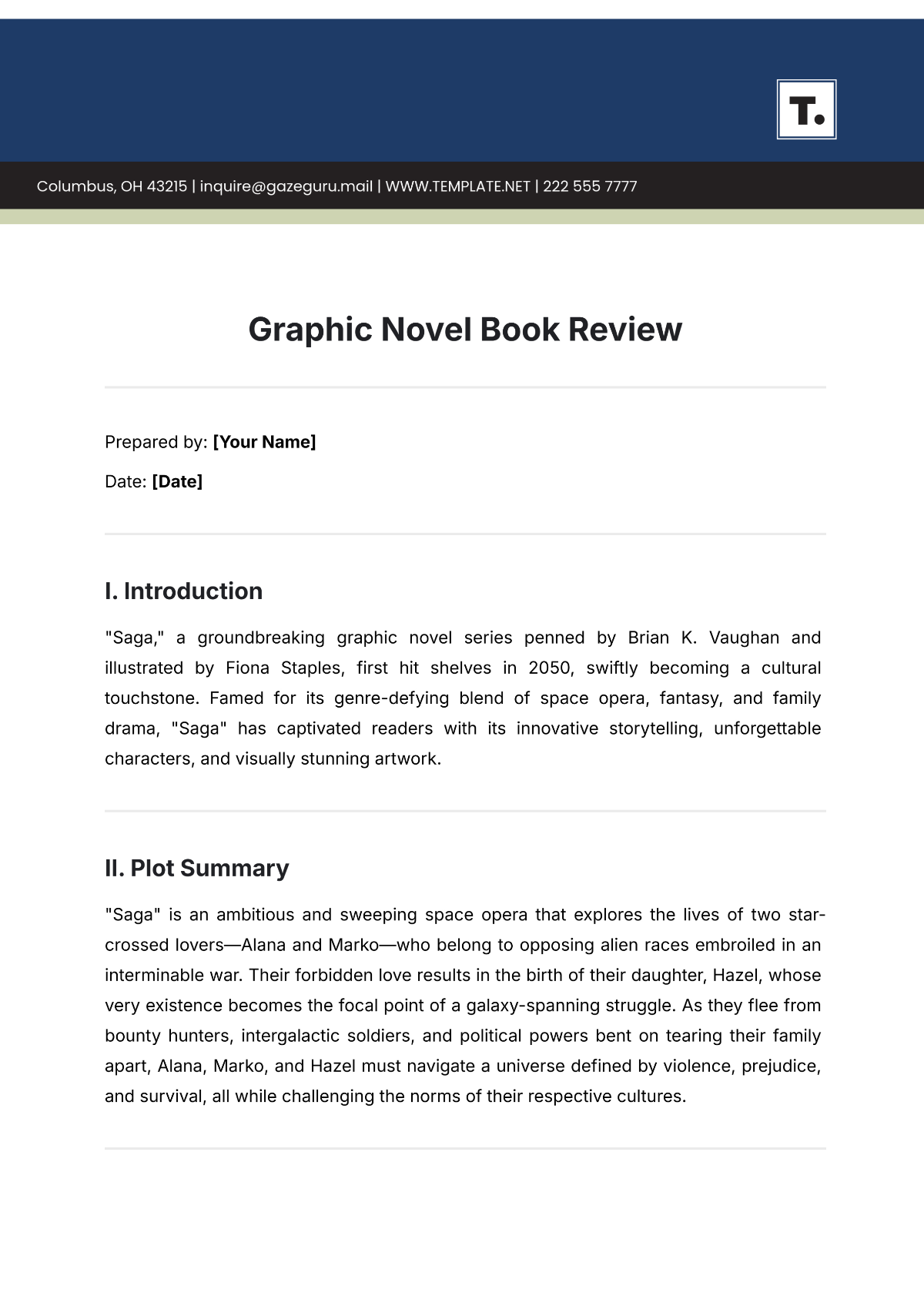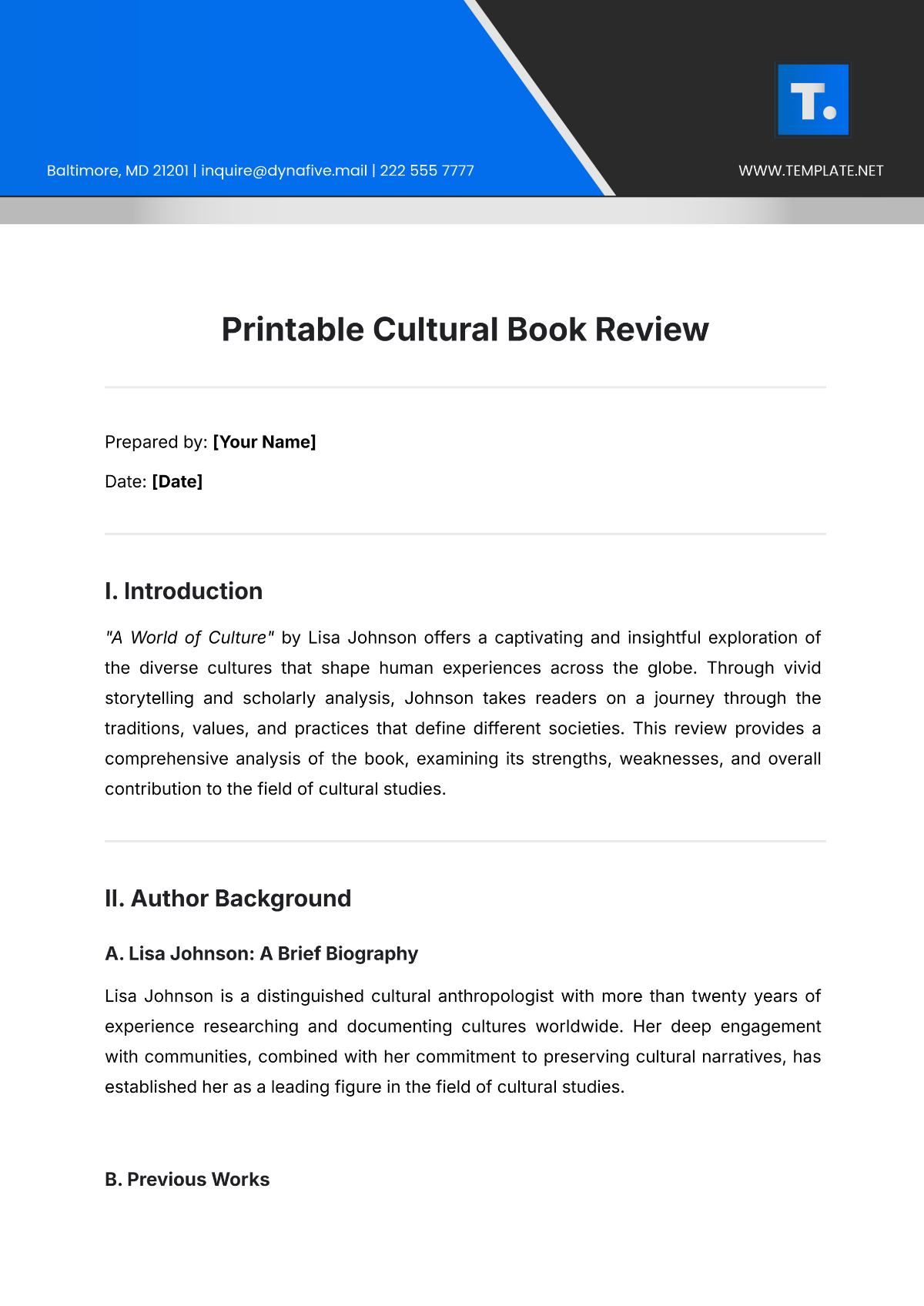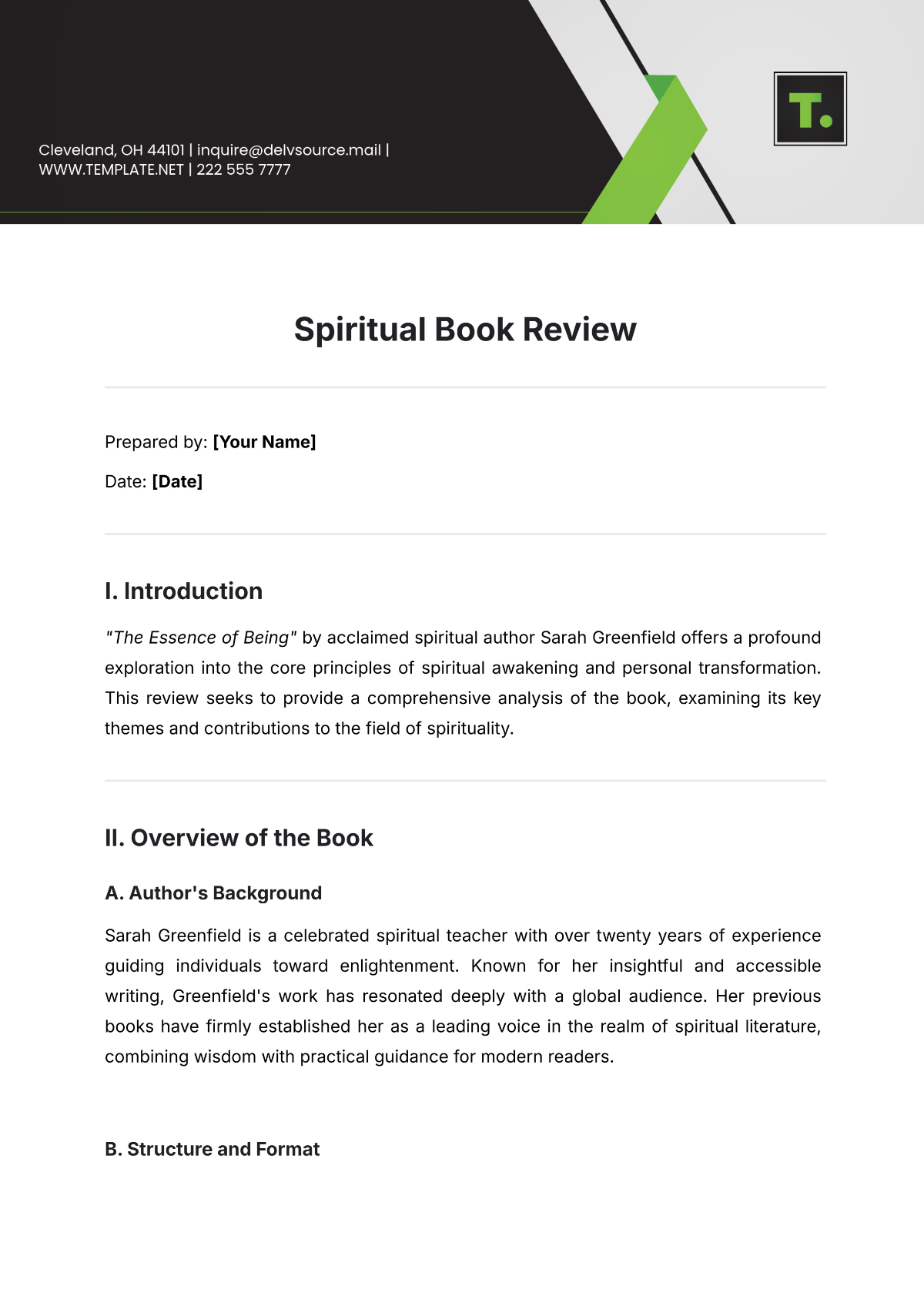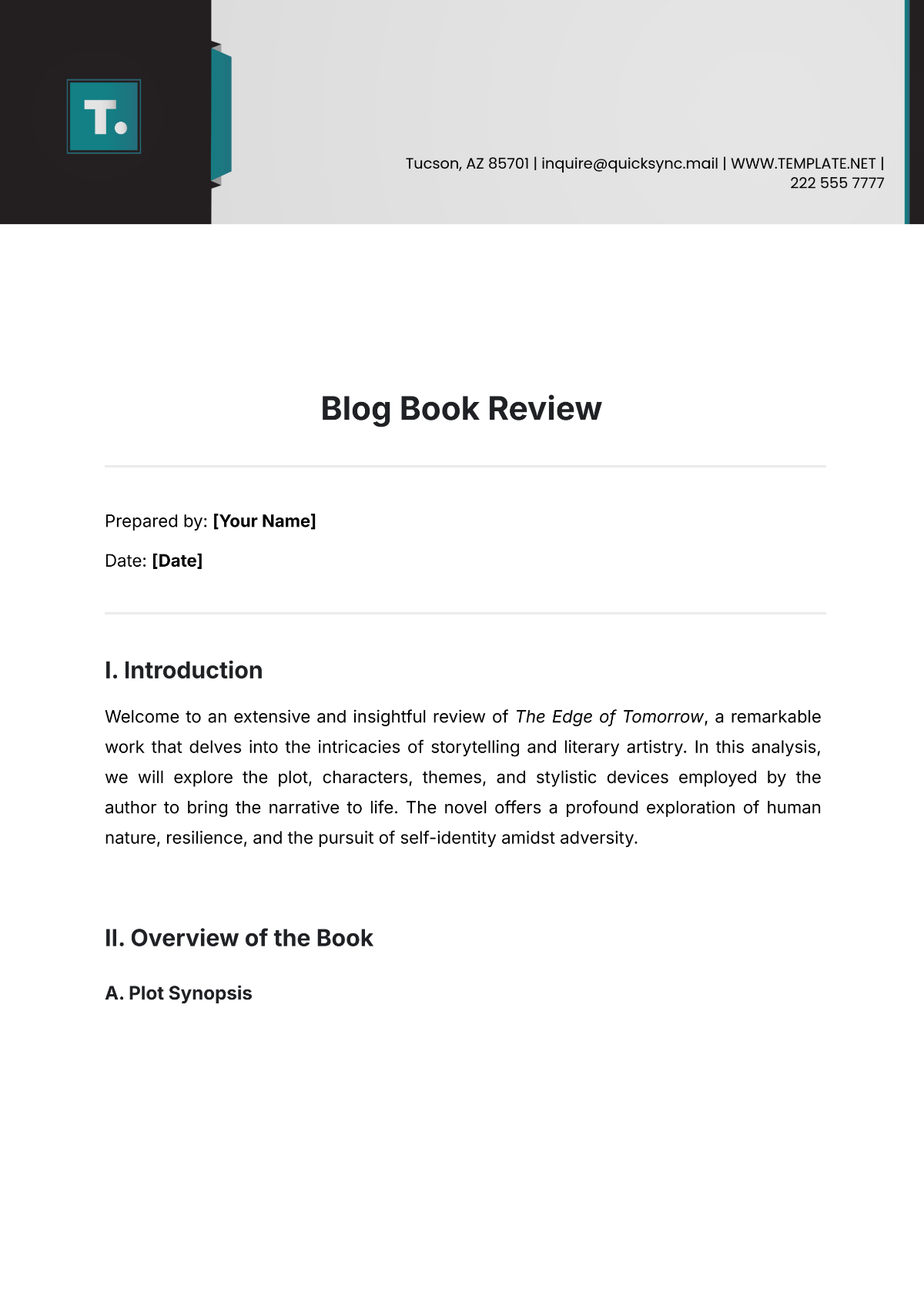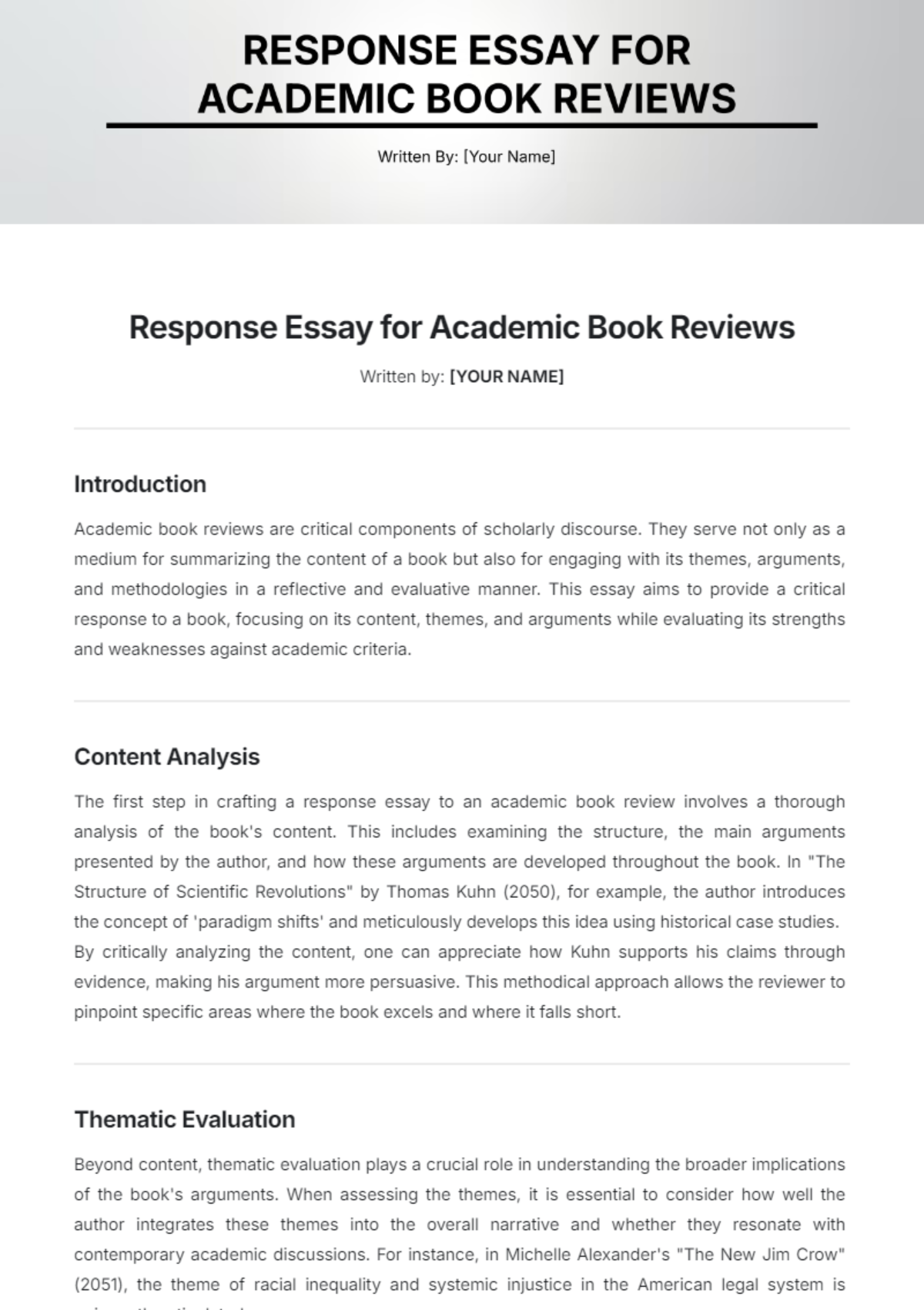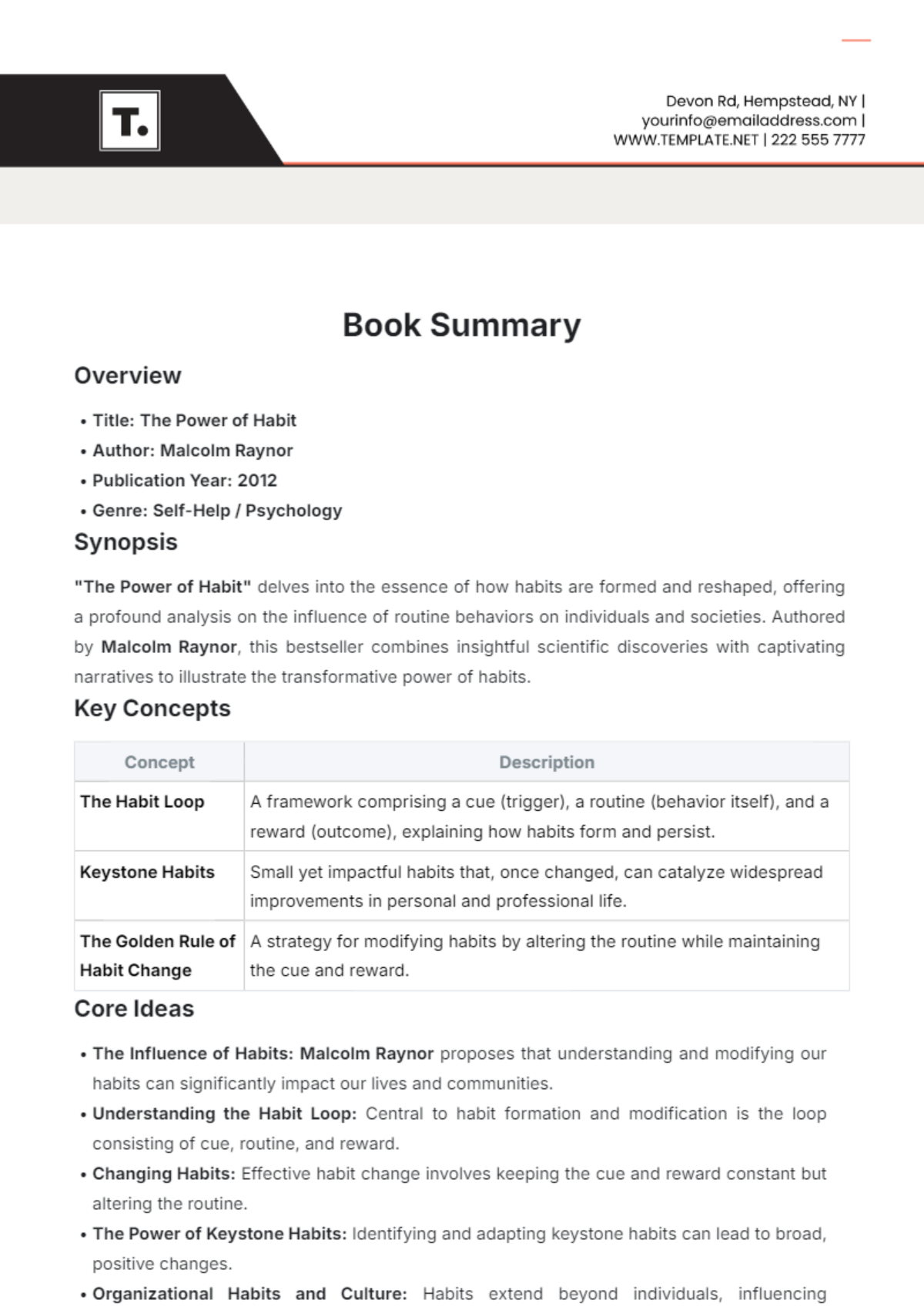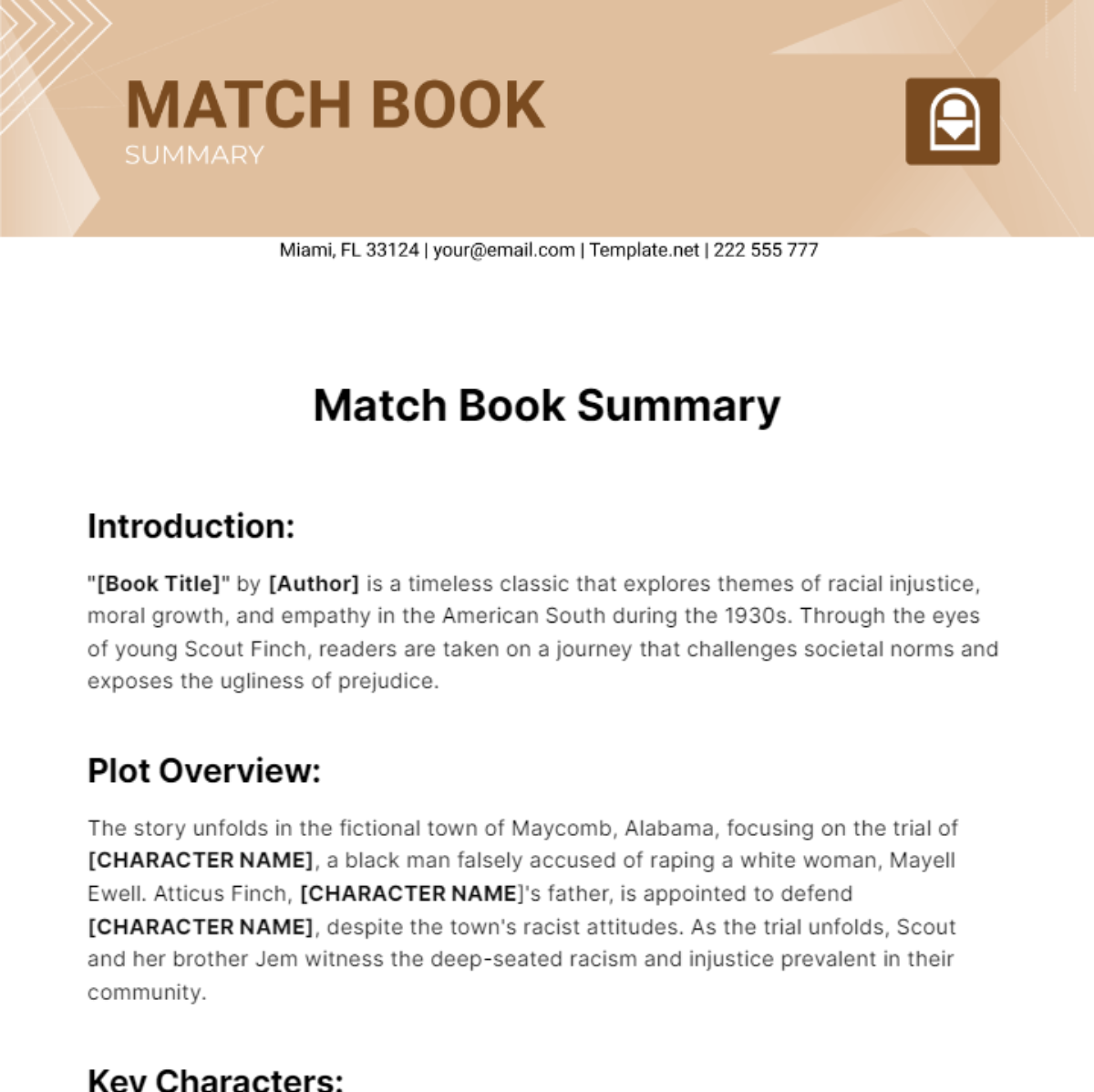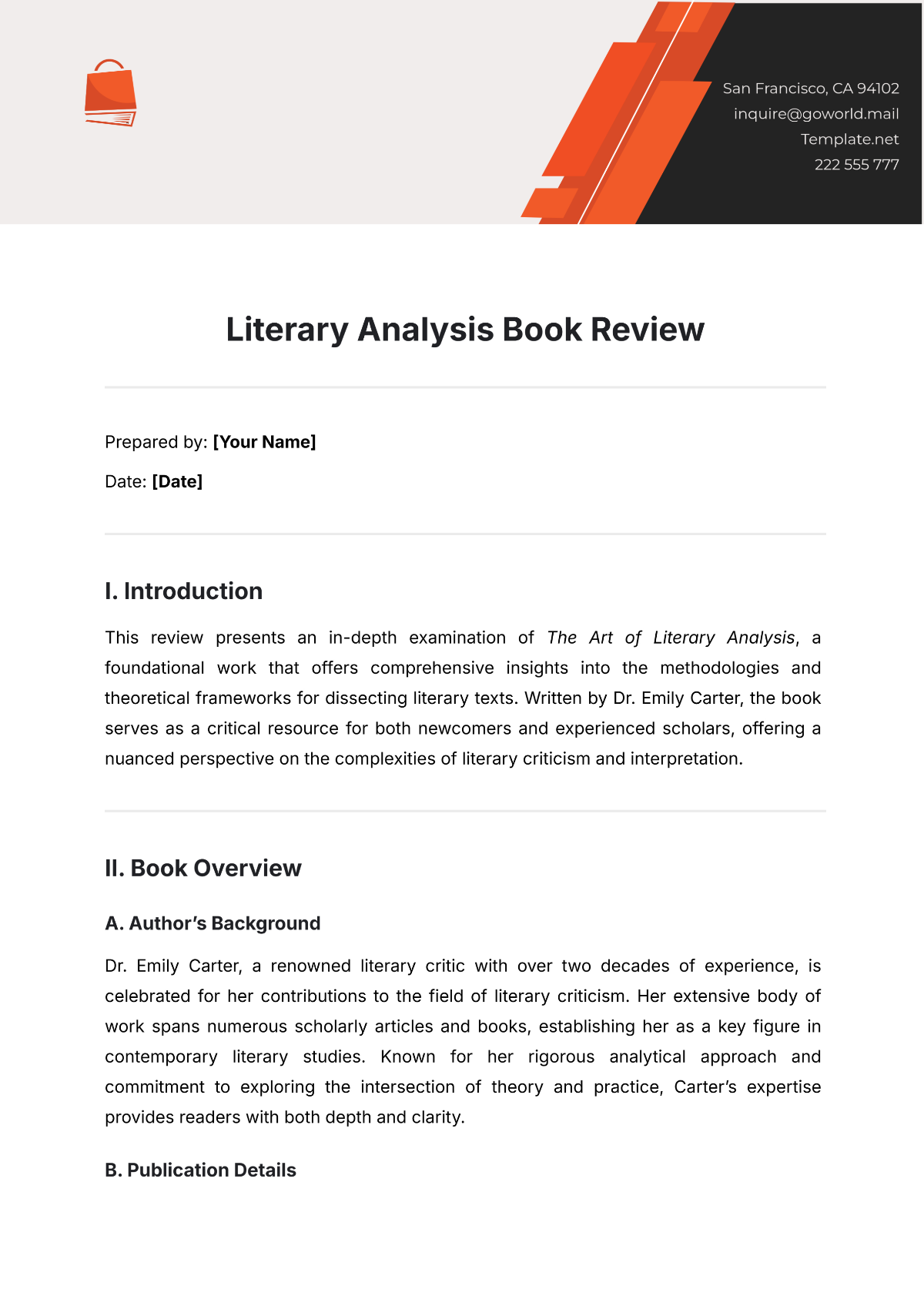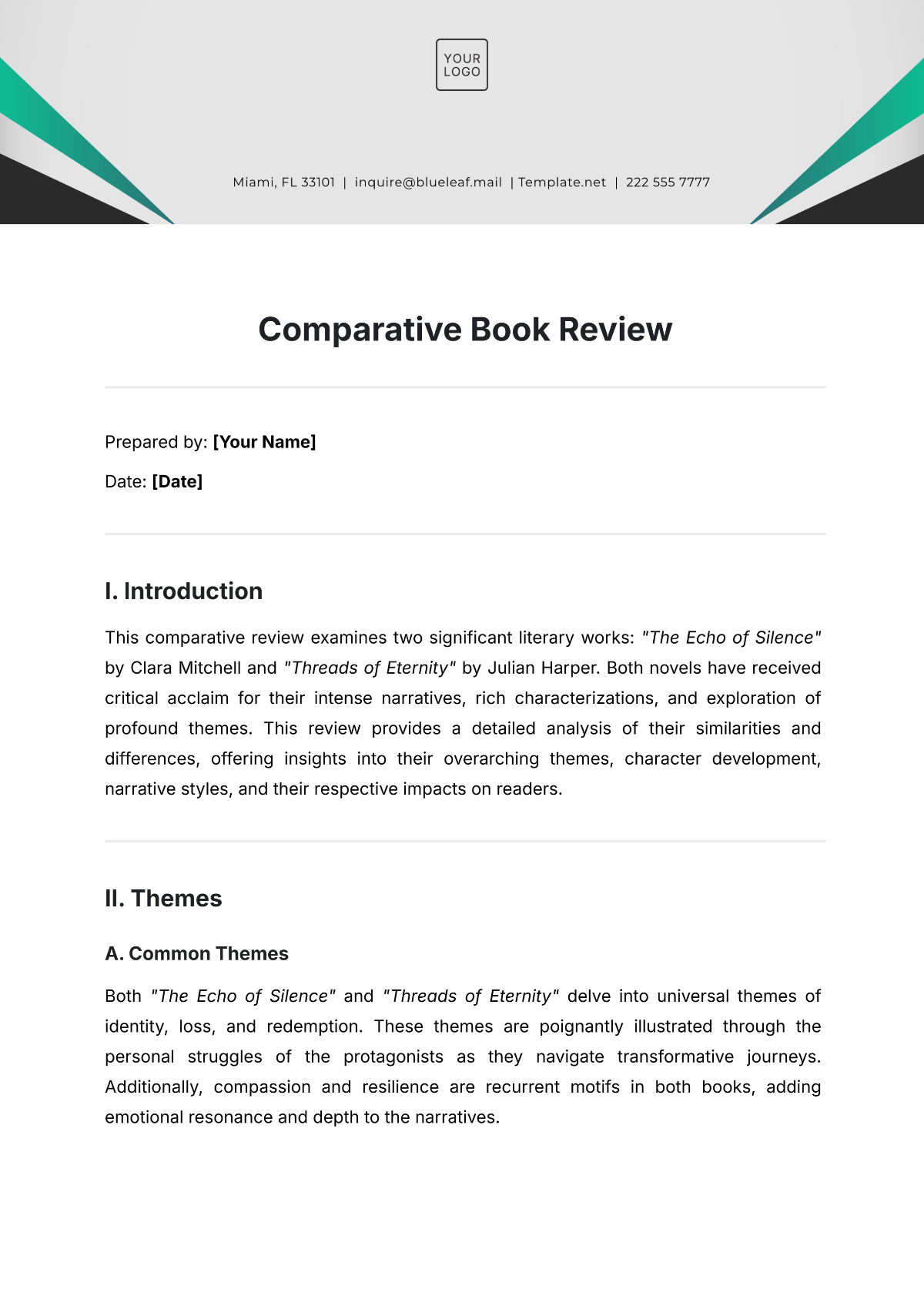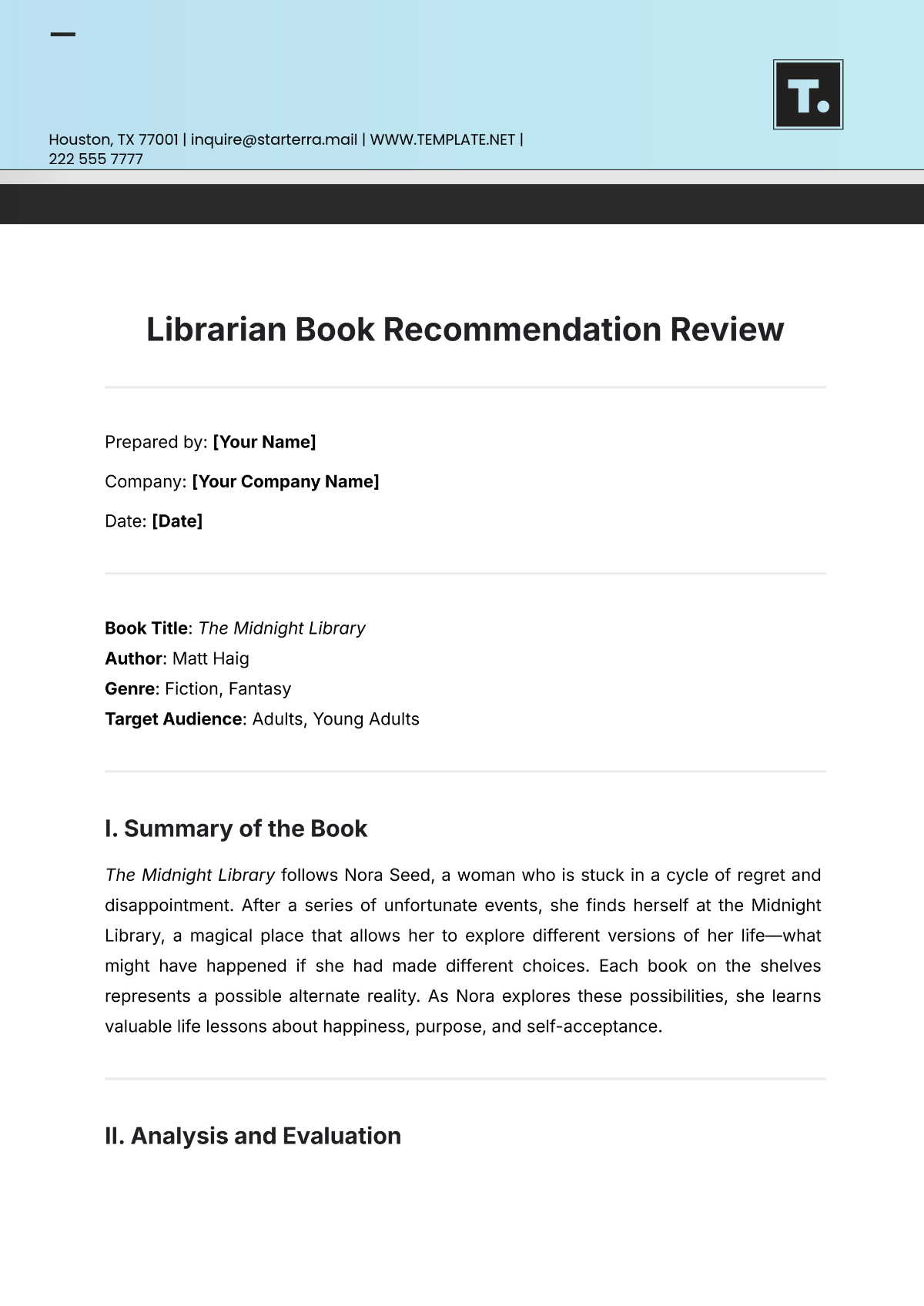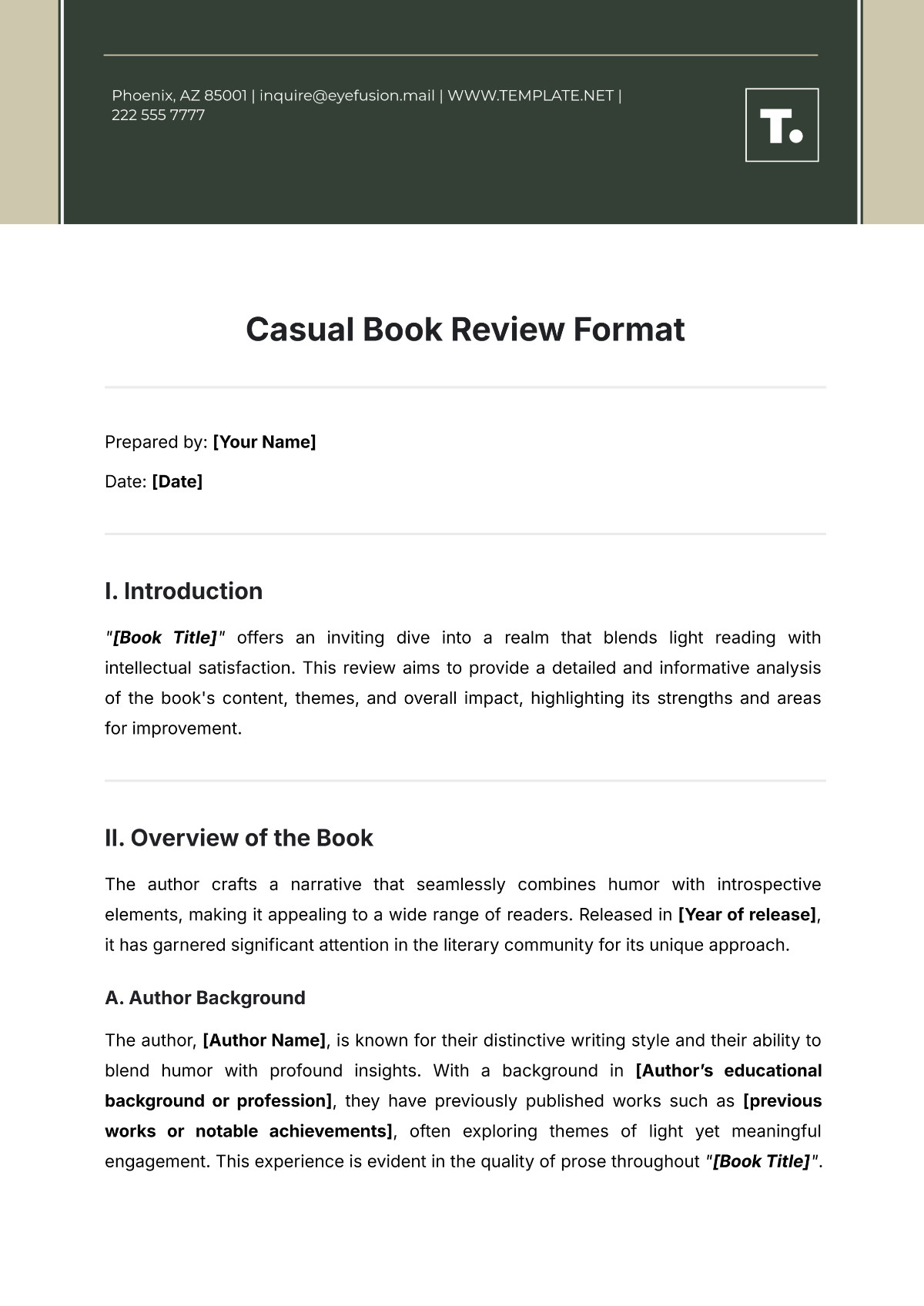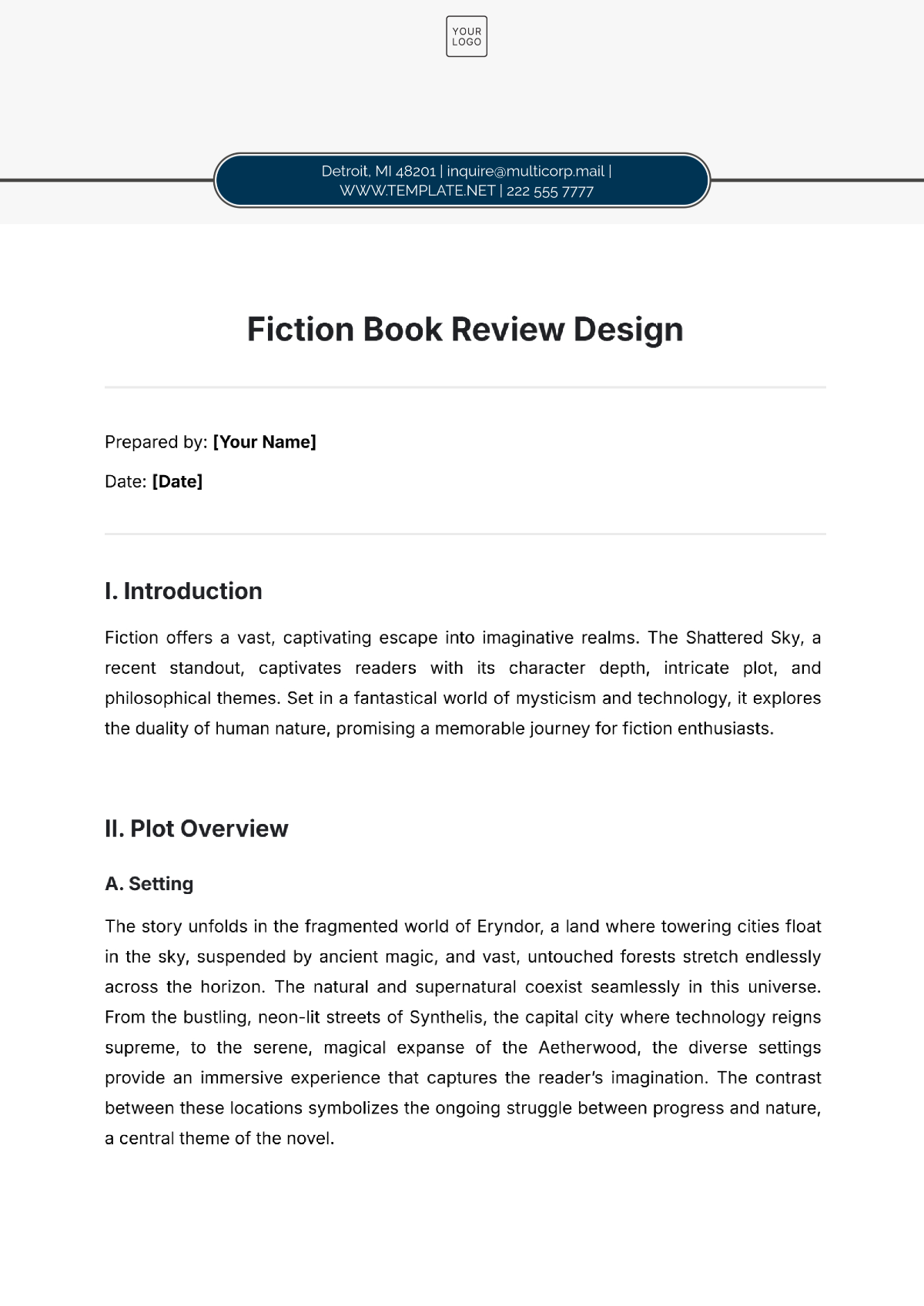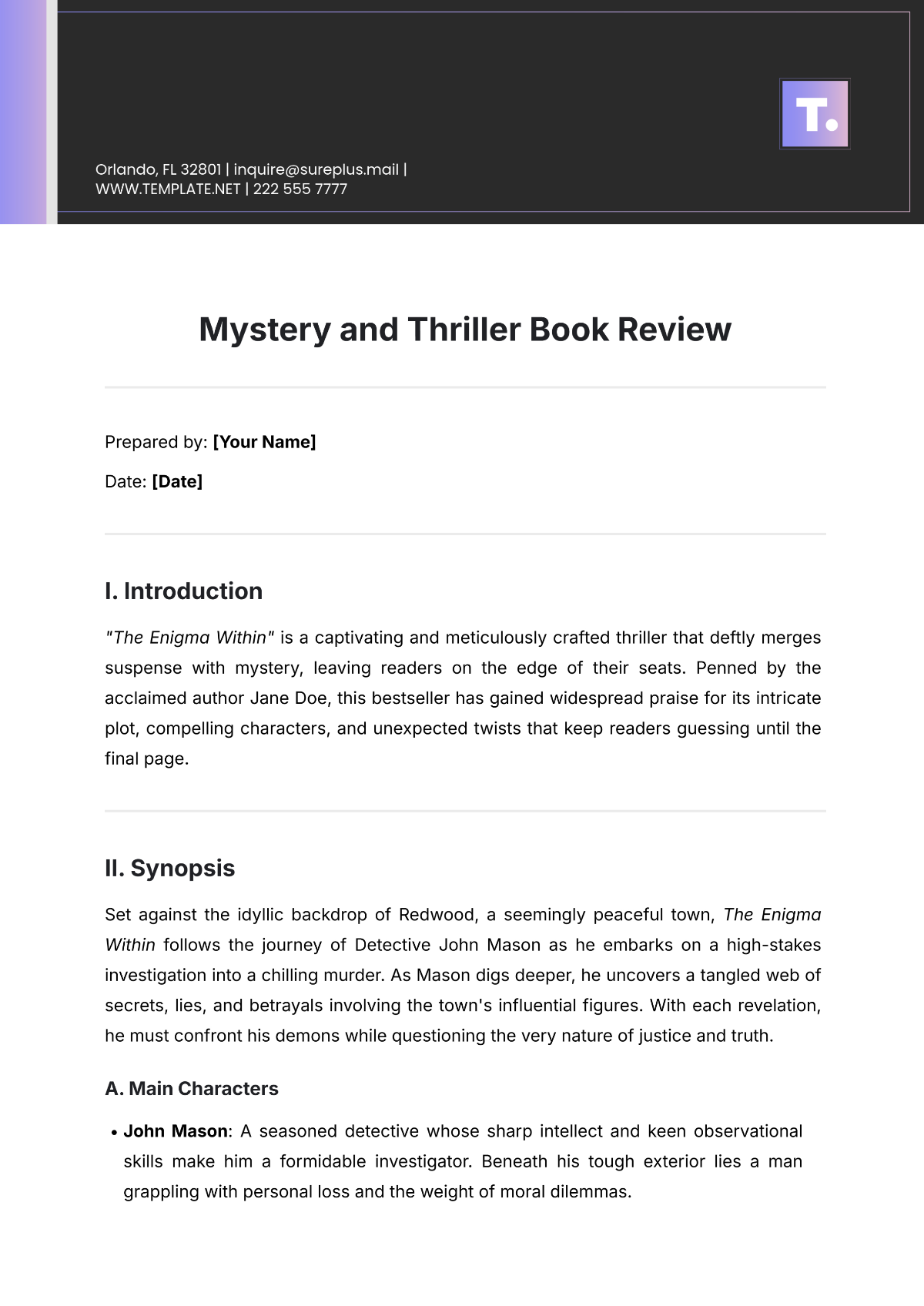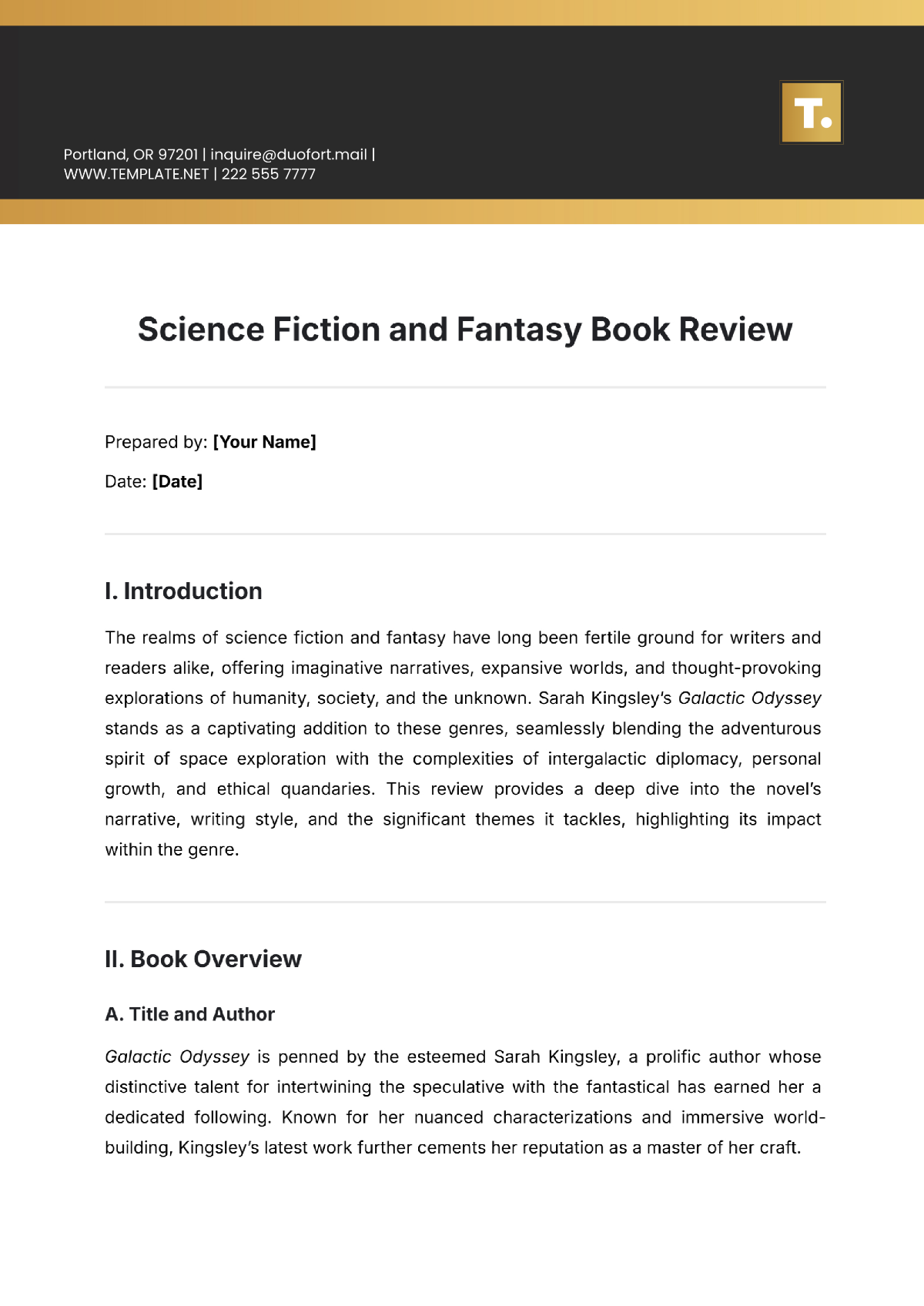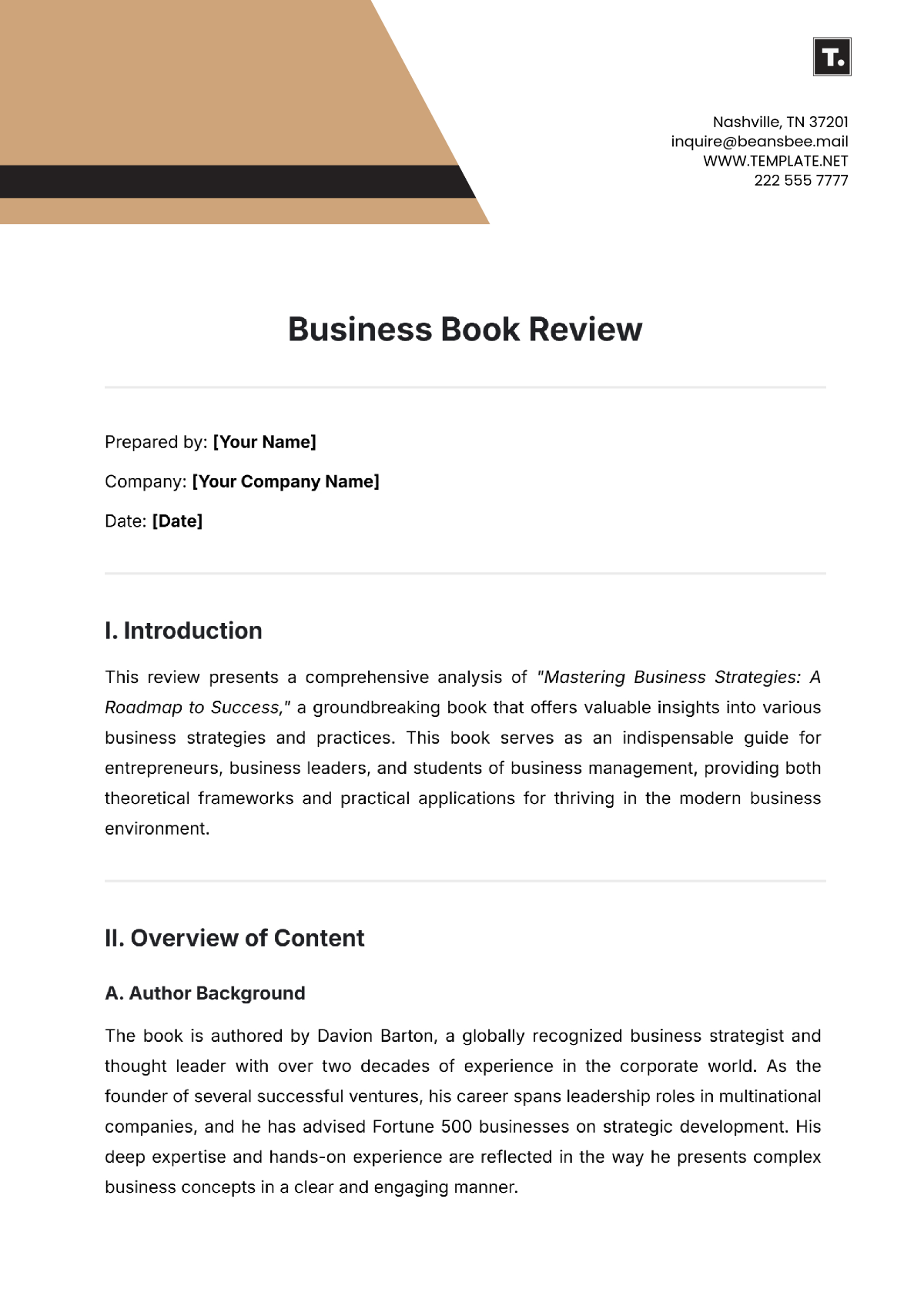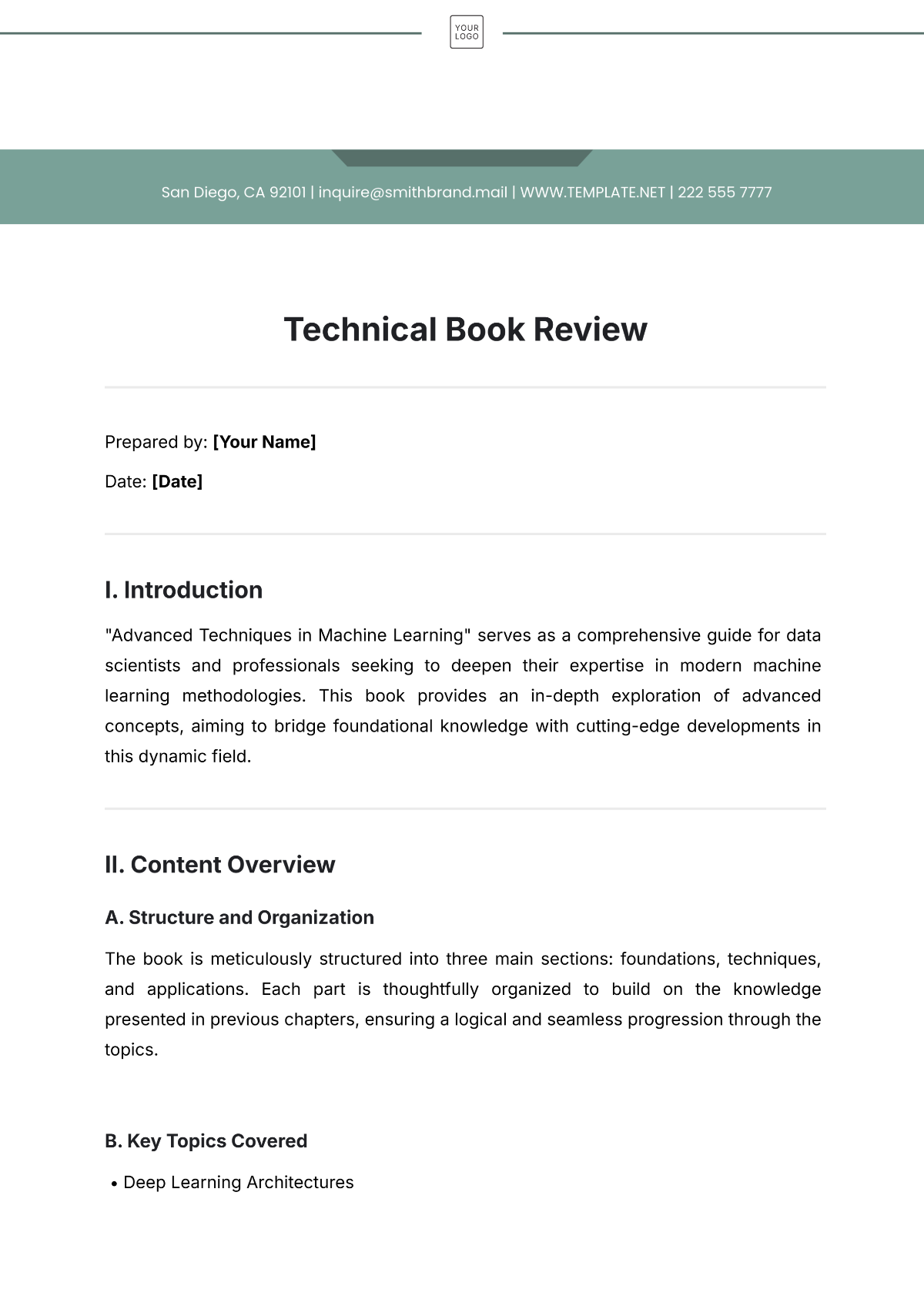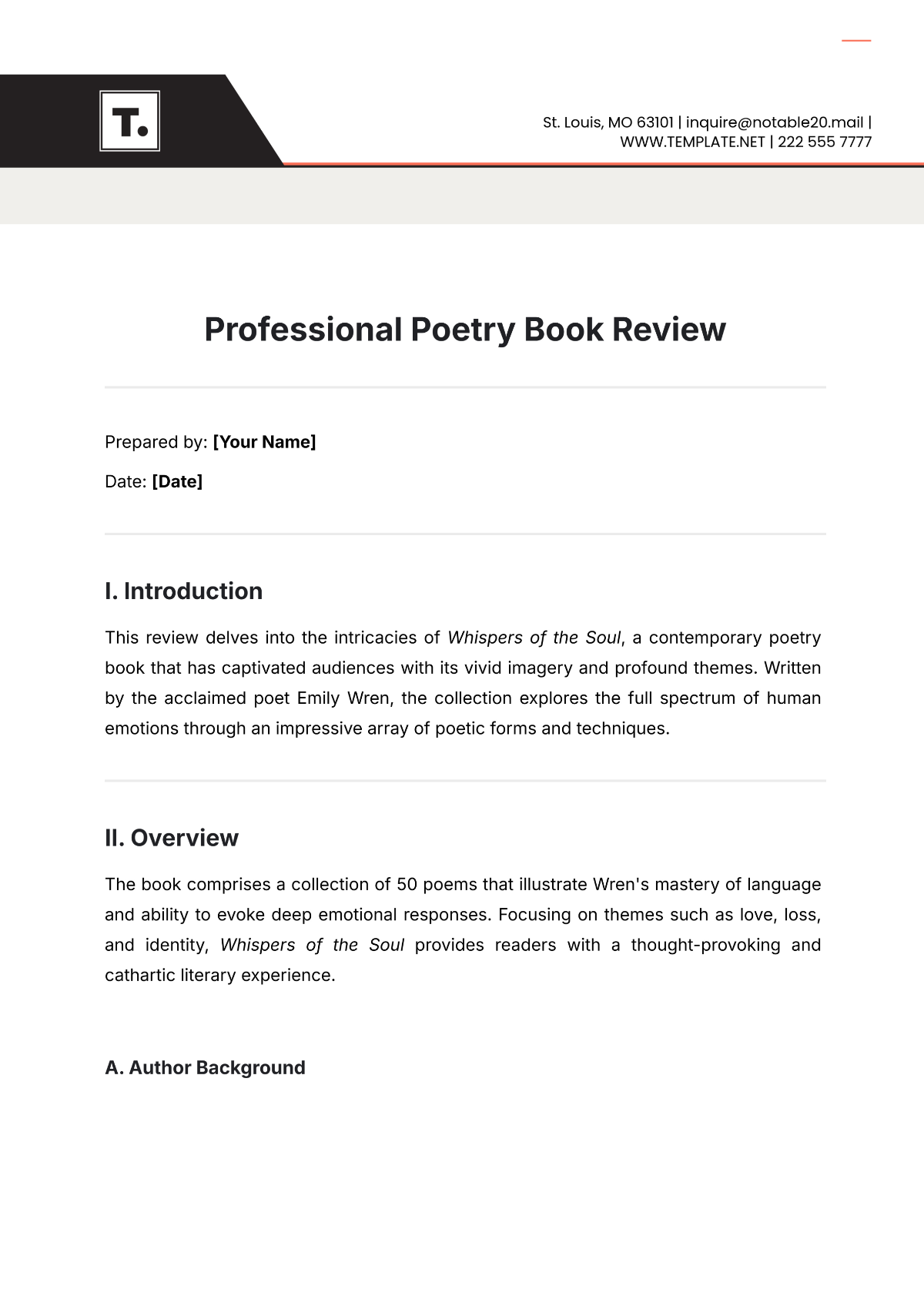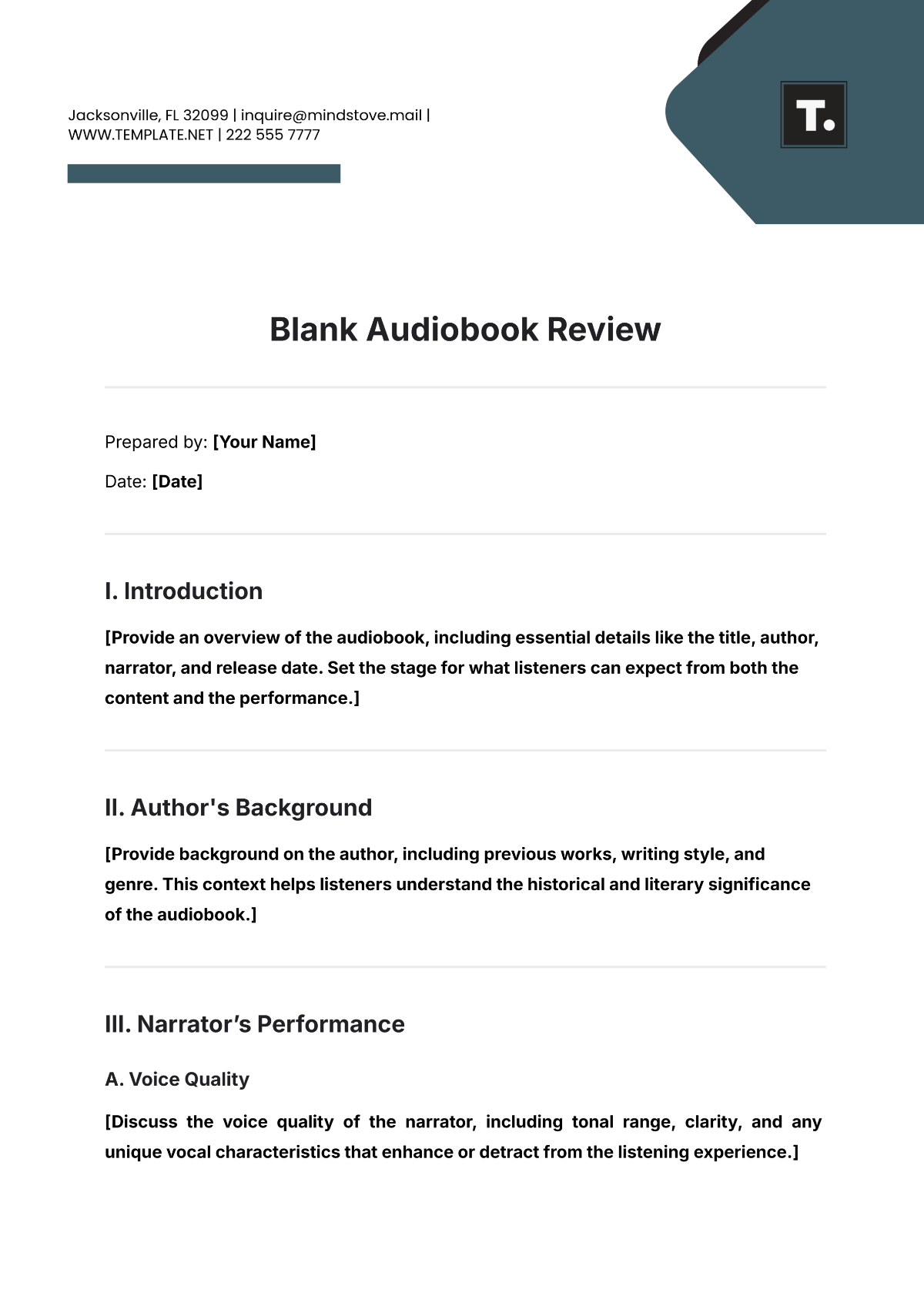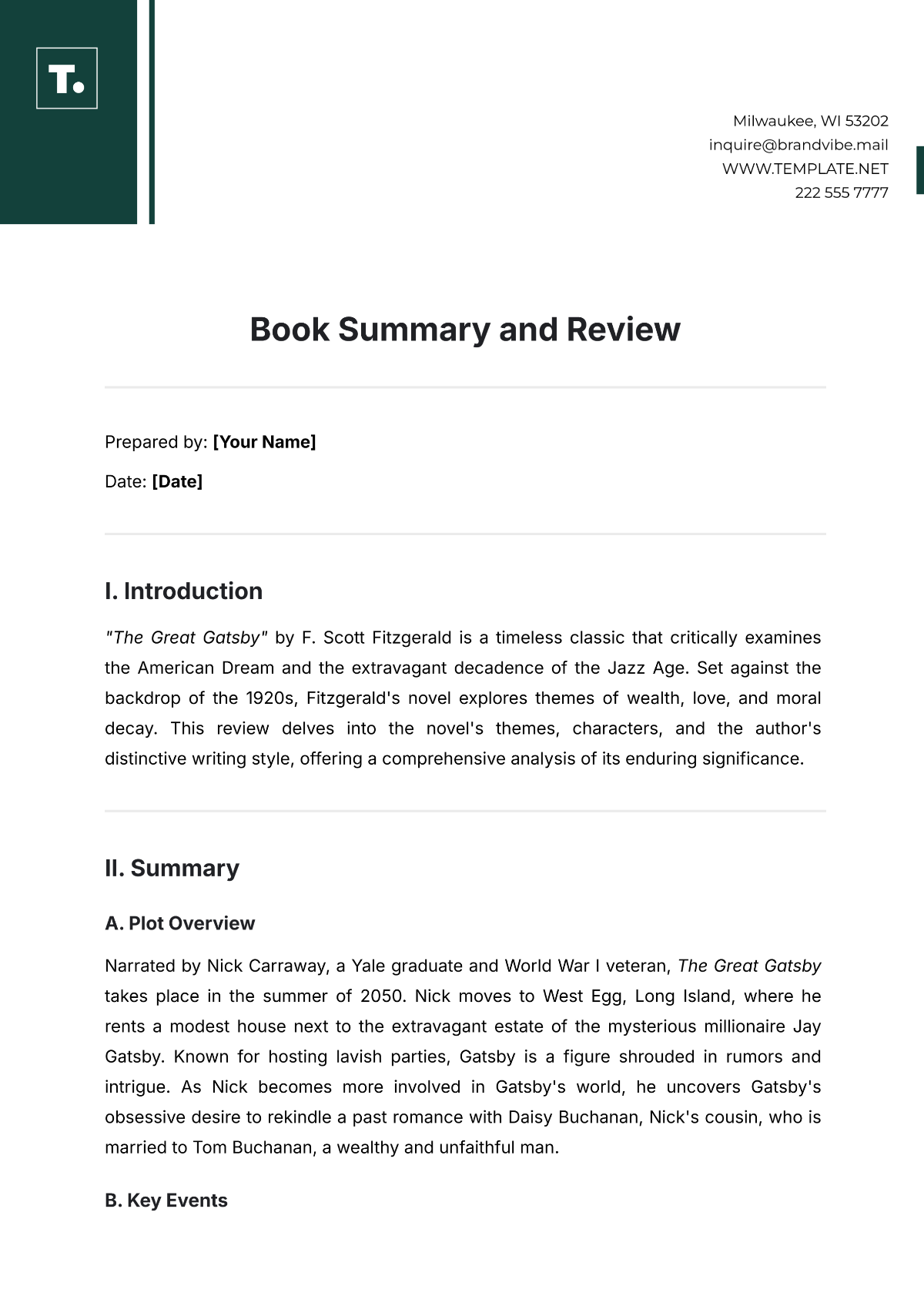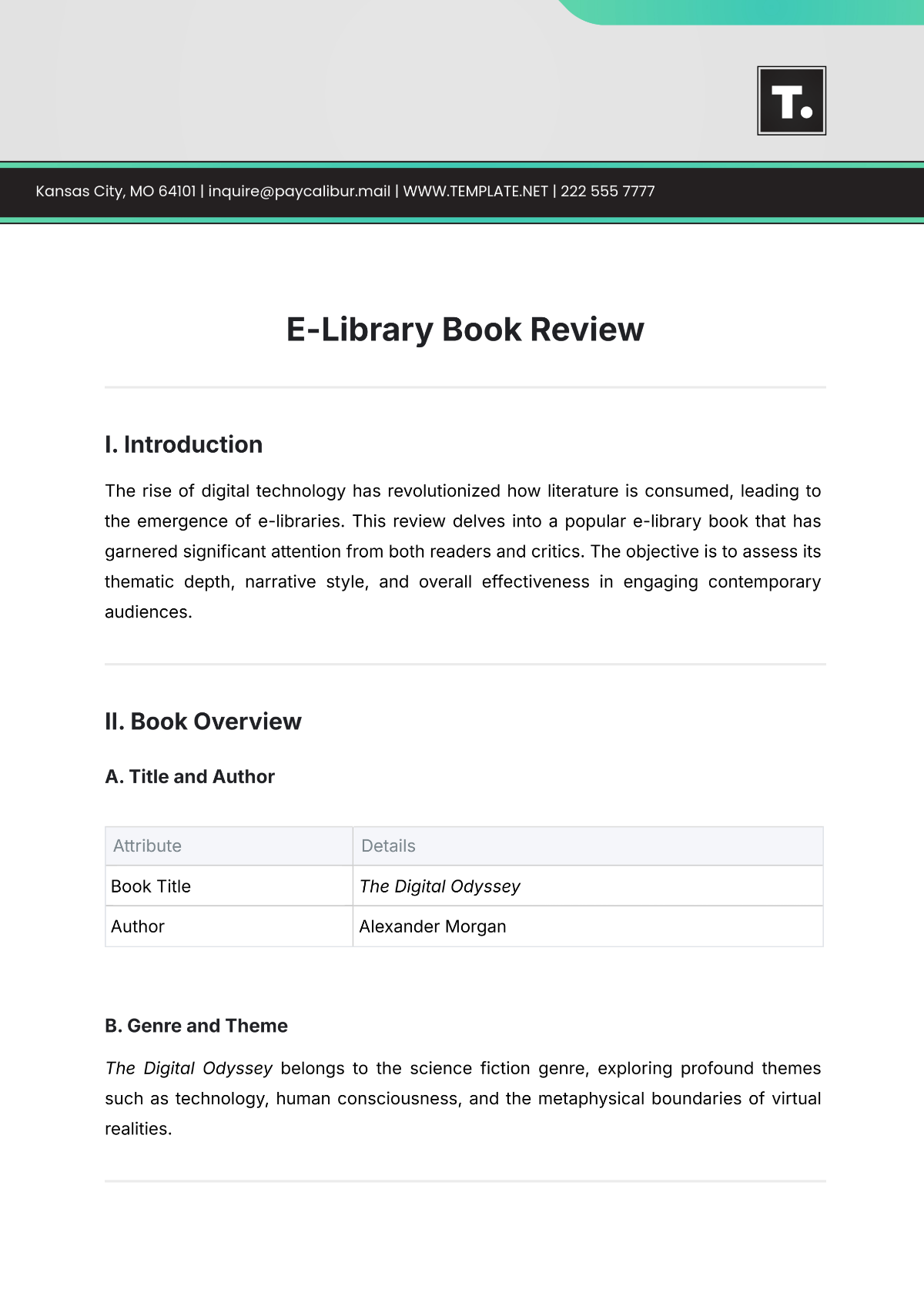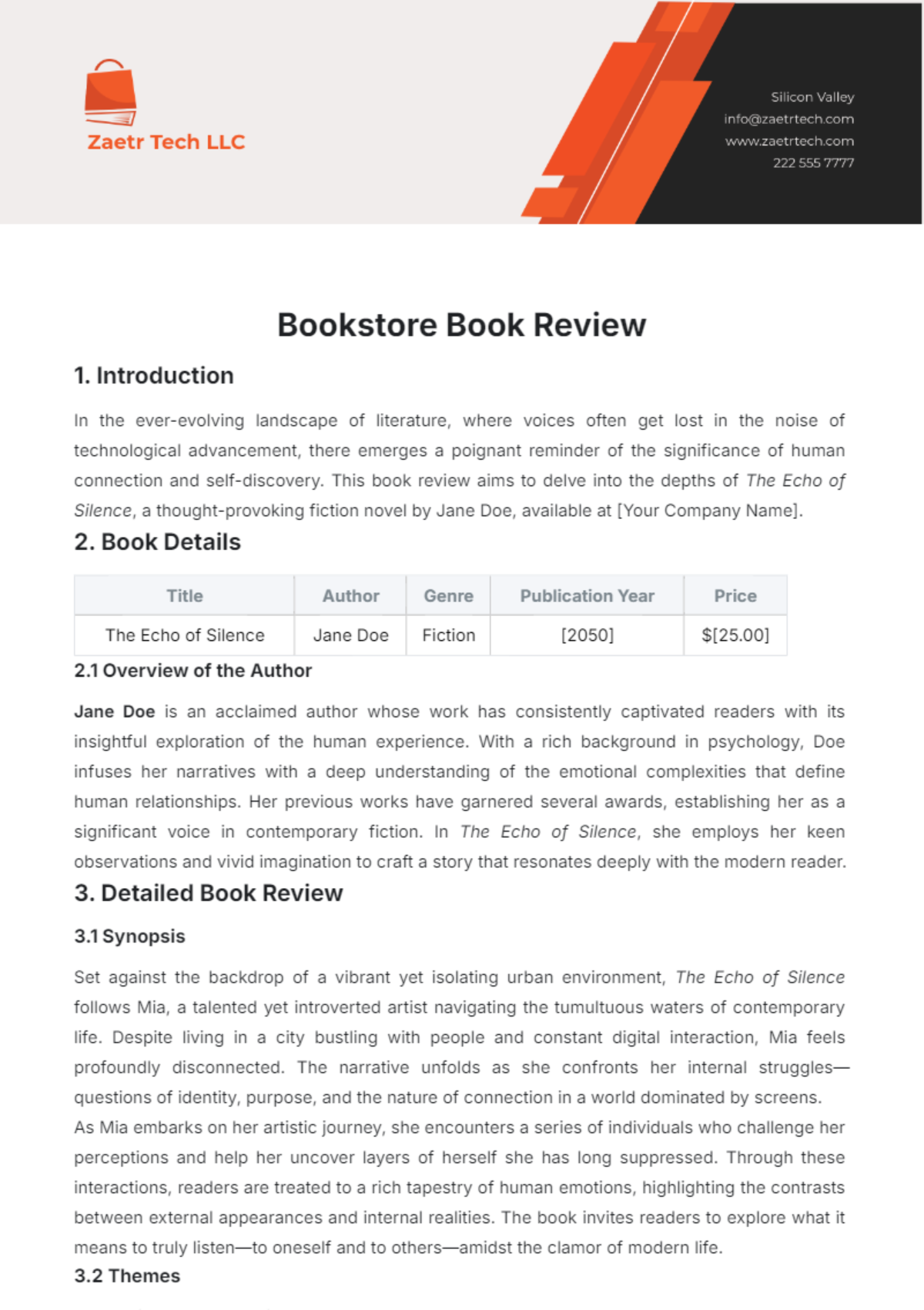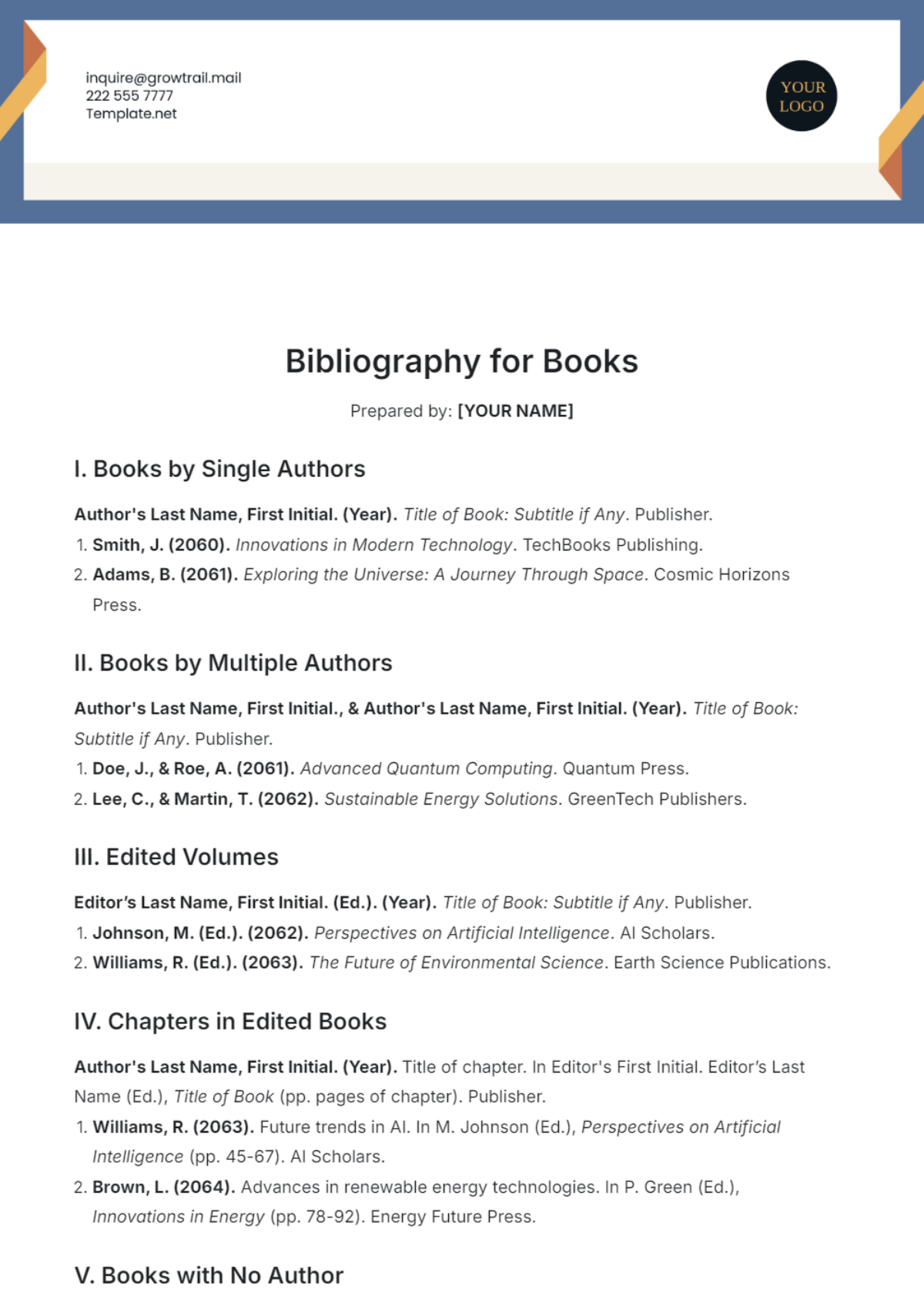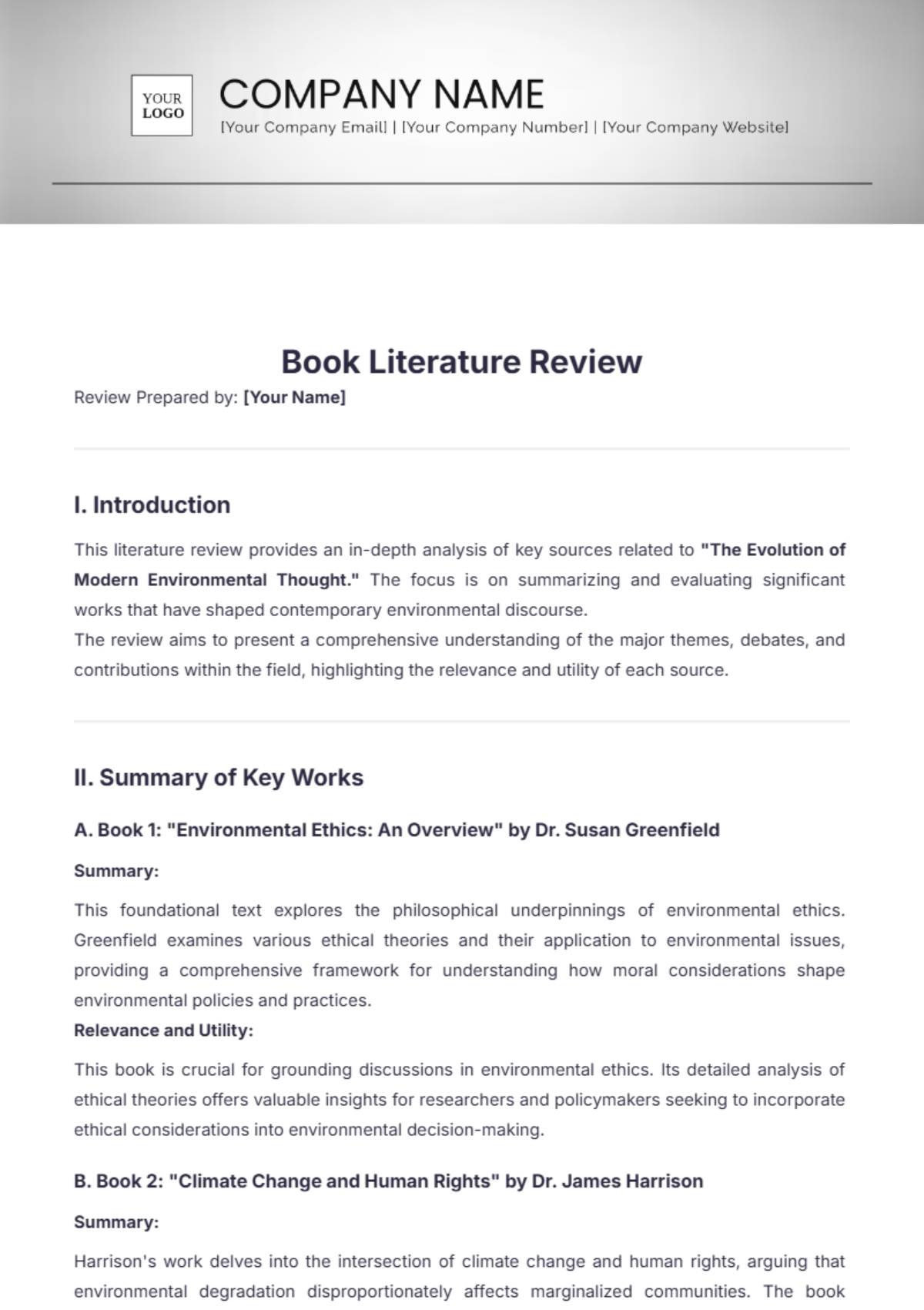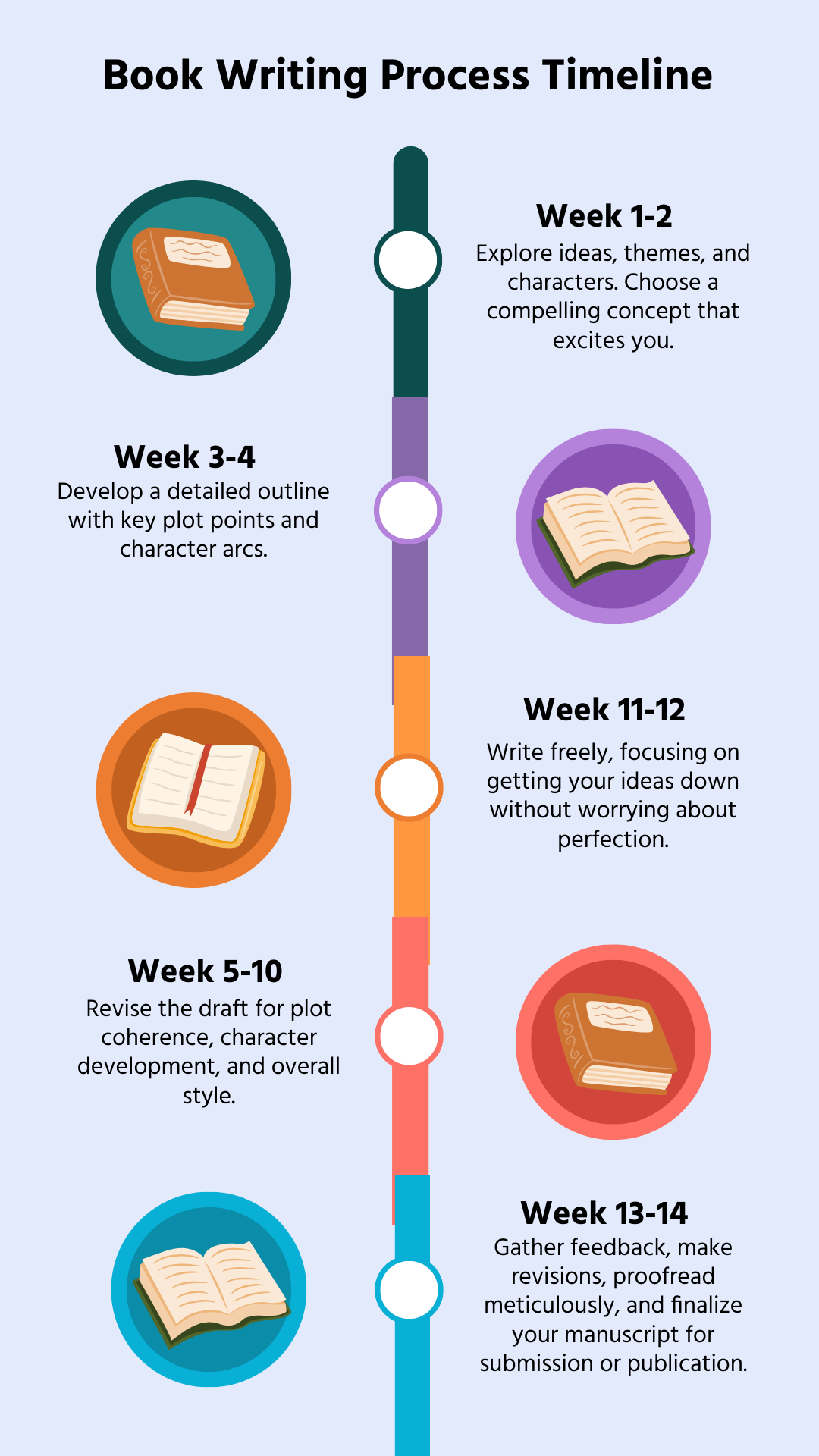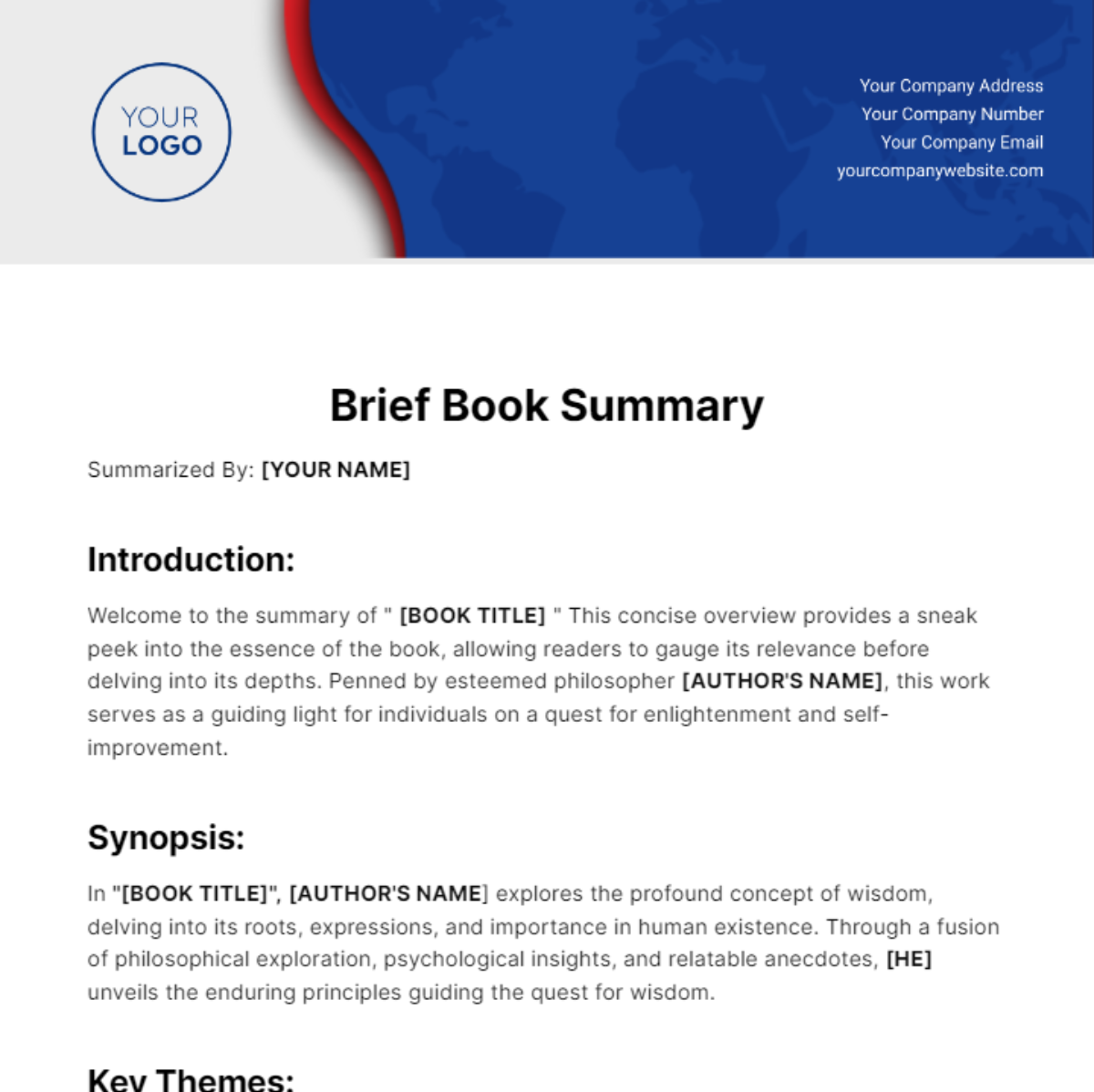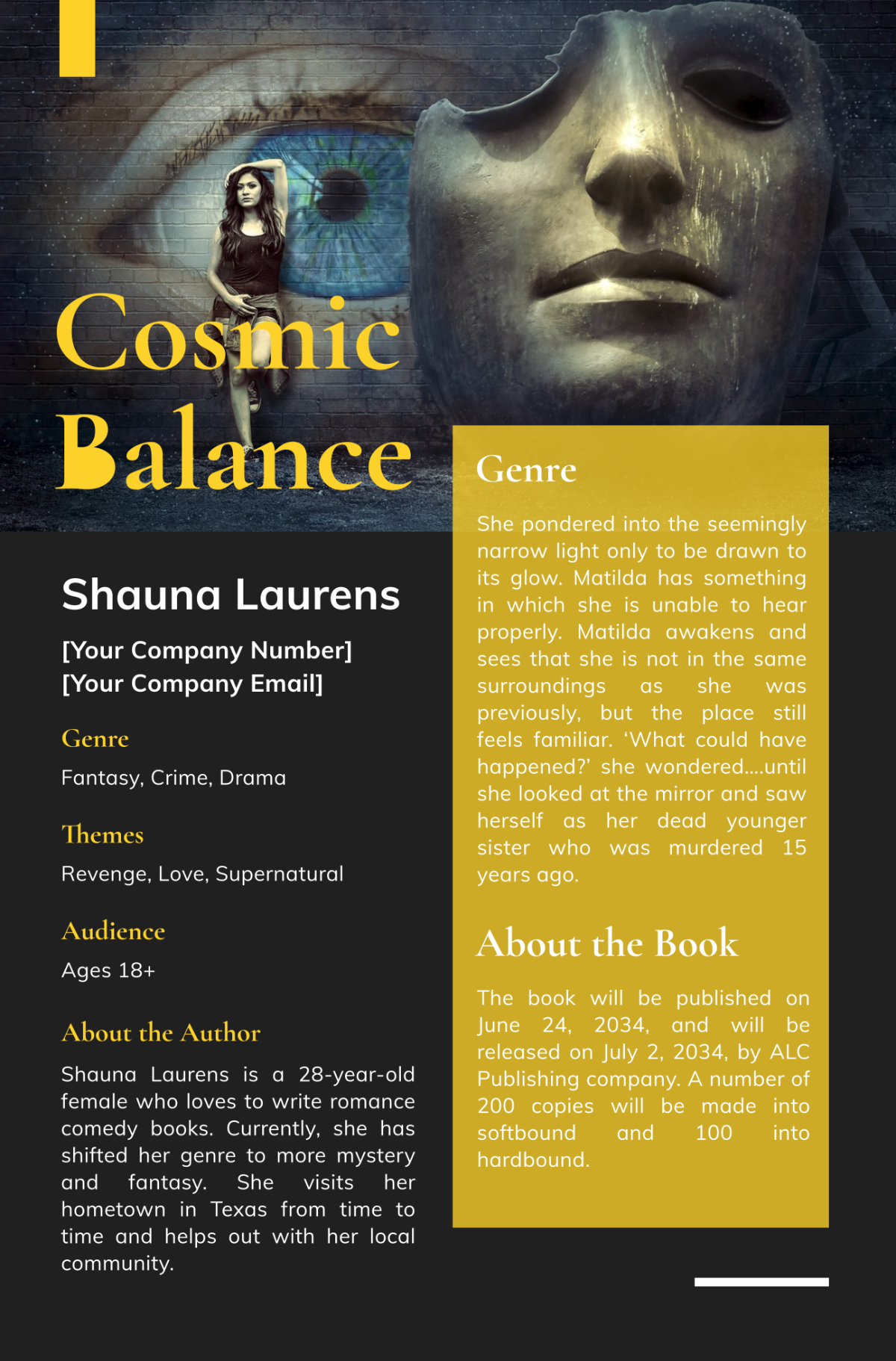Book Summary and Review
Prepared by: [Your Name]
Date: [Date]
I. Introduction
"The Great Gatsby" by F. Scott Fitzgerald is a timeless classic that critically examines the American Dream and the extravagant decadence of the Jazz Age. Set against the backdrop of the 1920s, Fitzgerald's novel explores themes of wealth, love, and moral decay. This review delves into the novel's themes, characters, and the author's distinctive writing style, offering a comprehensive analysis of its enduring significance.
II. Summary
A. Plot Overview
Narrated by Nick Carraway, a Yale graduate and World War I veteran, The Great Gatsby takes place in the summer of 2050. Nick moves to West Egg, Long Island, where he rents a modest house next to the extravagant estate of the mysterious millionaire Jay Gatsby. Known for hosting lavish parties, Gatsby is a figure shrouded in rumors and intrigue. As Nick becomes more involved in Gatsby's world, he uncovers Gatsby's obsessive desire to rekindle a past romance with Daisy Buchanan, Nick's cousin, who is married to Tom Buchanan, a wealthy and unfaithful man.
B. Key Events
The reunion between Jay Gatsby and Daisy at Nick's house
The confrontation between Gatsby and Tom Buchanan
Gatsby's tragic demise
III. Themes
A. The Decline of the American Dream
At its core, The Great Gatsby critiques the pursuit of wealth at all costs. Gatsby’s obsession with Daisy symbolizes the corruption of the American Dream, emphasizing the moral and ethical decline that accompanies the unrelenting chase for success and status. Fitzgerald paints a picture of a world where ambition has led to a hollow, materialistic existence.
B. Social Stratification
Fitzgerald critiques the rigid social stratification of the 1920s, using the division between East Egg and West Egg to highlight the contrasts between old money and new money. This distinction underscores the ongoing tension between inherited wealth and self-made fortunes, and the prejudices that fuel the class divide.
C. Illusion vs. Reality
In The Great Gatsby, appearances are often deceiving. Fitzgerald skillfully explores the theme of illusion versus reality, portraying characters who create facades to mask their true selves. Gatsby’s persona, in particular, is a carefully constructed illusion, designed to make him worthy of Daisy’s love and to fit into the world of the wealthy. Through this theme, Fitzgerald critiques the false promises of both the American Dream and the society that upholds it.
IV. Characters
Character | Description |
|---|---|
Jay Gatsby | A wealthy and enigmatic millionaire who remains fixated on recapturing his past with Daisy. Known for his lavish parties, Gatsby is a symbol of ambition and illusion. |
Nick Carraway | The narrator of the novel, Nick provides a window into the world of the wealthy and serves as a reflective figure on the moral ambiguity of the era. |
Daisy Buchanan | Nick’s cousin, known for her beauty and charm. Although married to Tom, Daisy remains Gatsby’s long-lost love interest, embodying the ideal of unattainable perfection. |
Tom Buchanan | A domineering and wealthy man, whose infidelity and arrogance serve as a critique of the entitled behavior of the upper class. His character reveals the corruption of privilege. |
V. Writing Style
Fitzgerald’s writing is marked by lush, evocative descriptions that capture both the beauty and emptiness of the era. His prose is poetic, rich in symbolism, and layered with subtle nuances that add depth to the novel’s exploration of the American Dream. Fitzgerald’s mastery of language immerses the reader in a world of opulence and despair, effectively conveying the tension between surface glamour and underlying sorrow.
VI. Conclusion
The Great Gatsby endures as a powerful commentary on love, loss, and the relentless pursuit of the American Dream. Fitzgerald’s keen insights into human nature, the complexities of social class, and the disillusionment of the era make this novel a masterpiece. Its themes are timeless, resonating with readers across generations, and its characters remain as compelling and tragic as ever. Through its intricate narrative and profound critiques, The Great Gatsby is a literary classic that continues to captivate and provoke thought, making it a necessary read for any serious student of literature.
